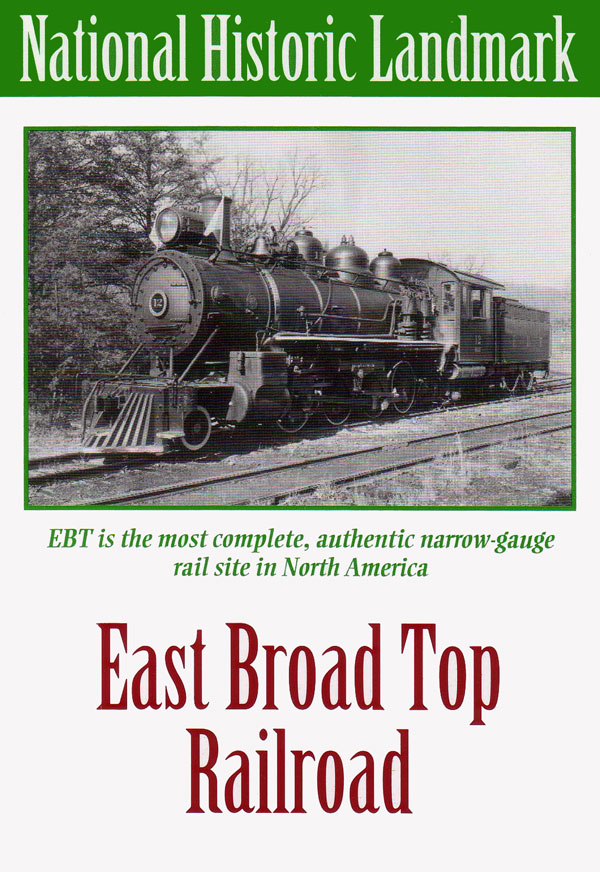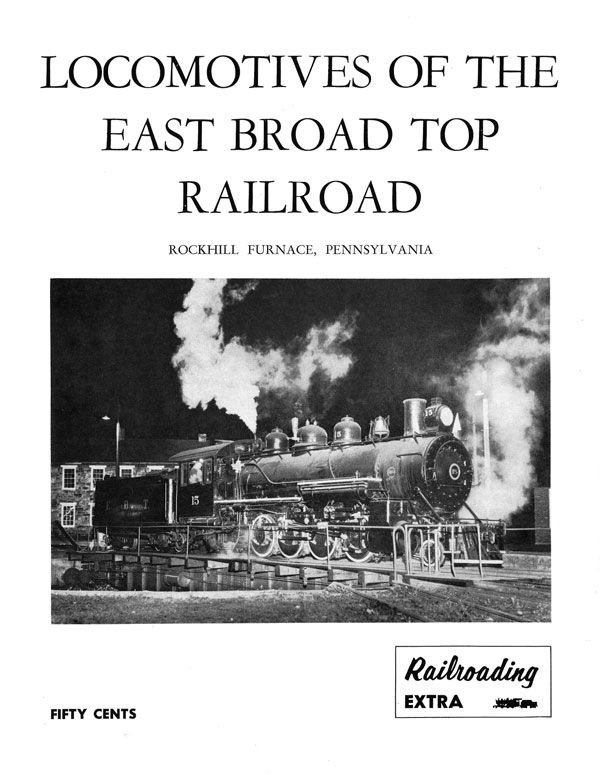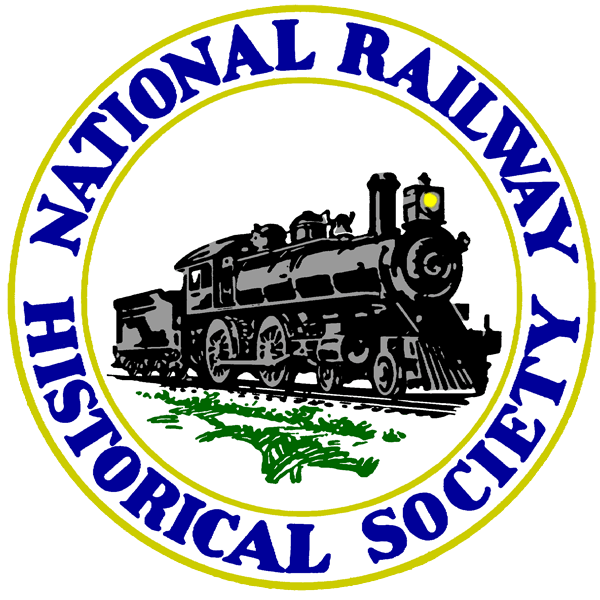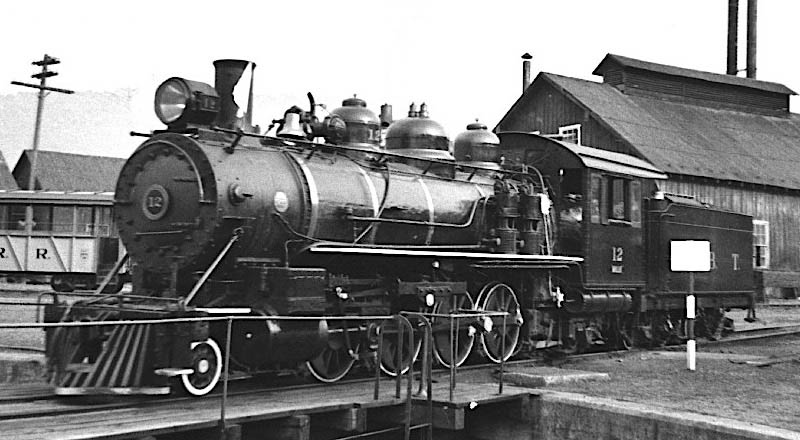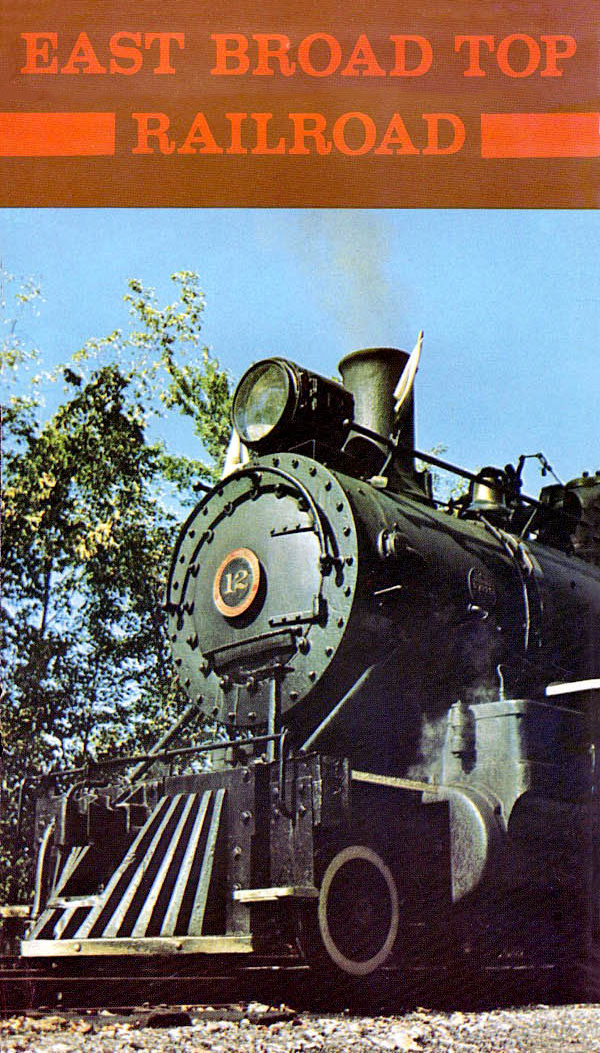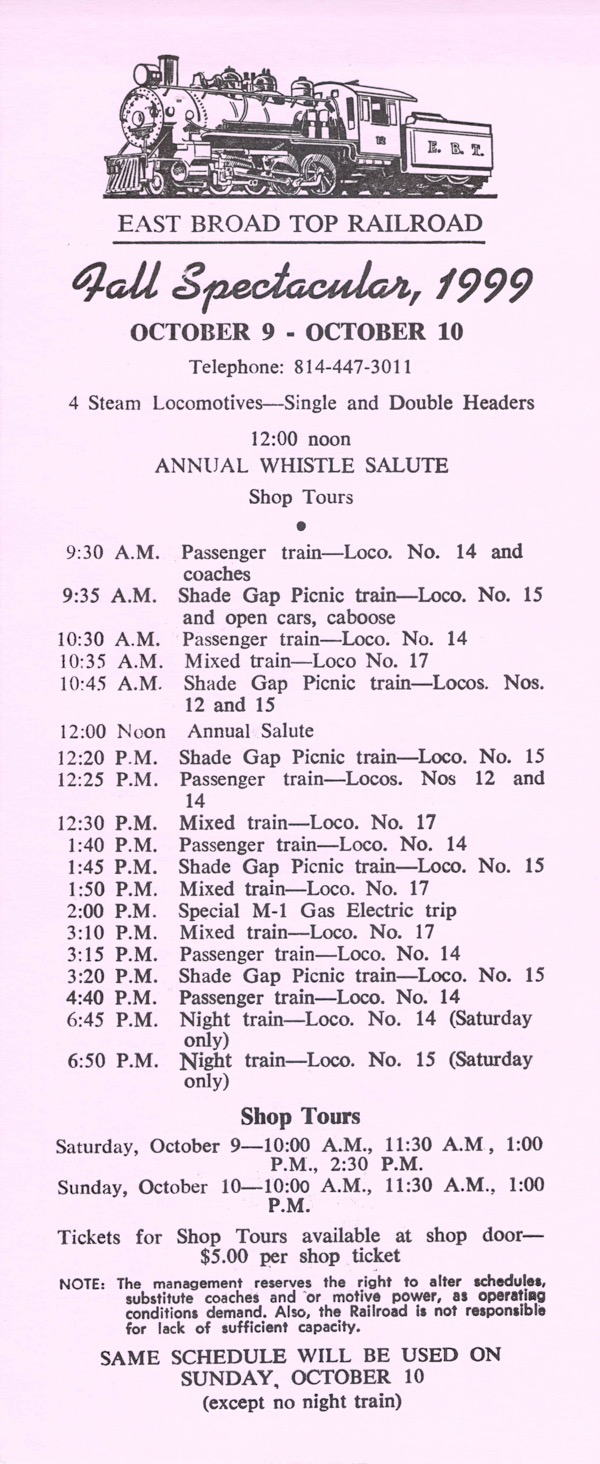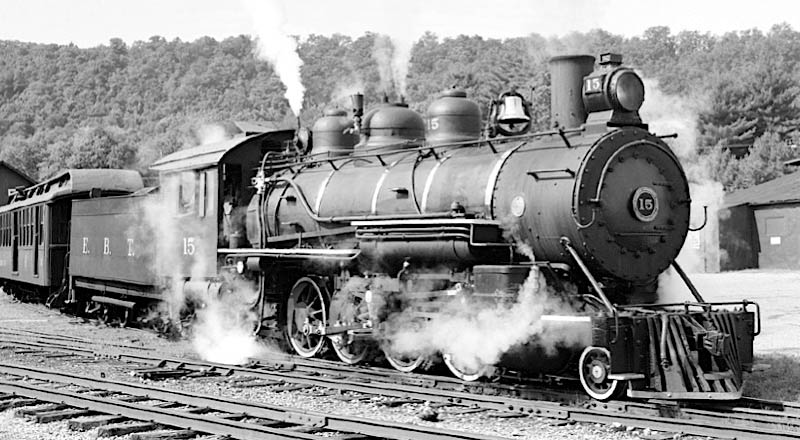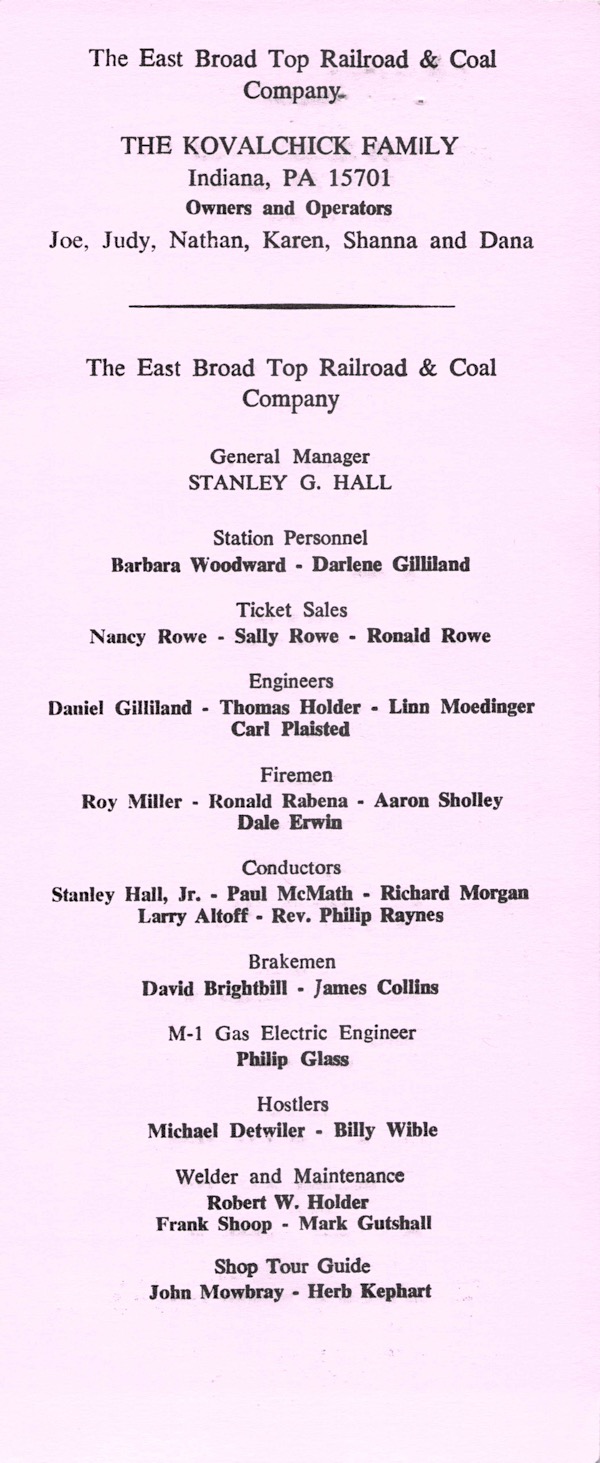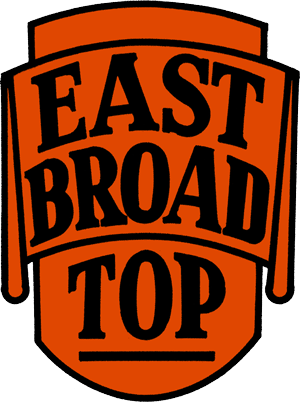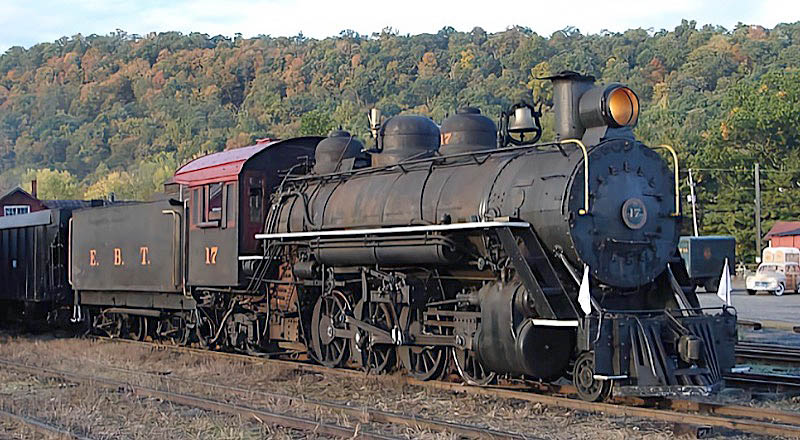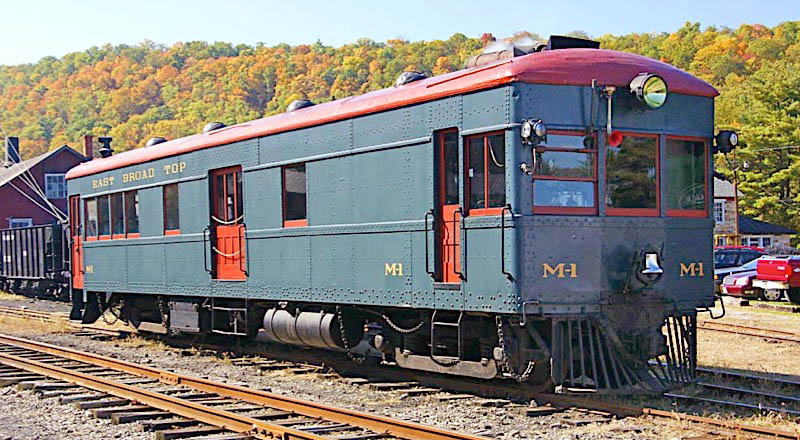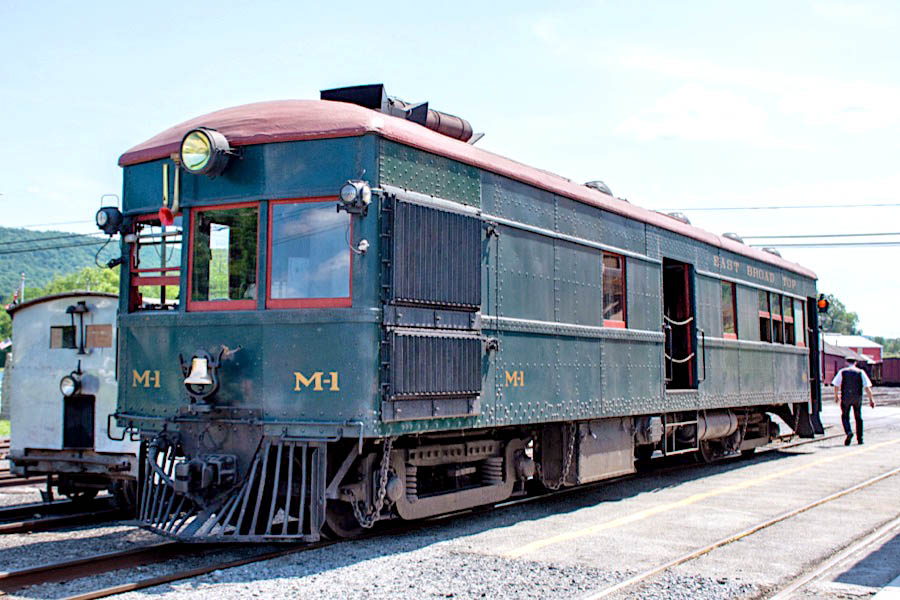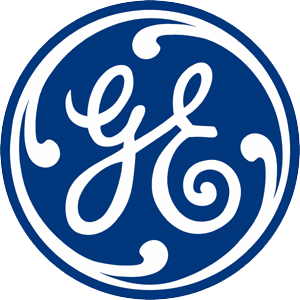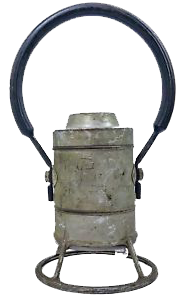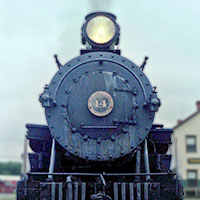 |
East Broad Top Motive Power |
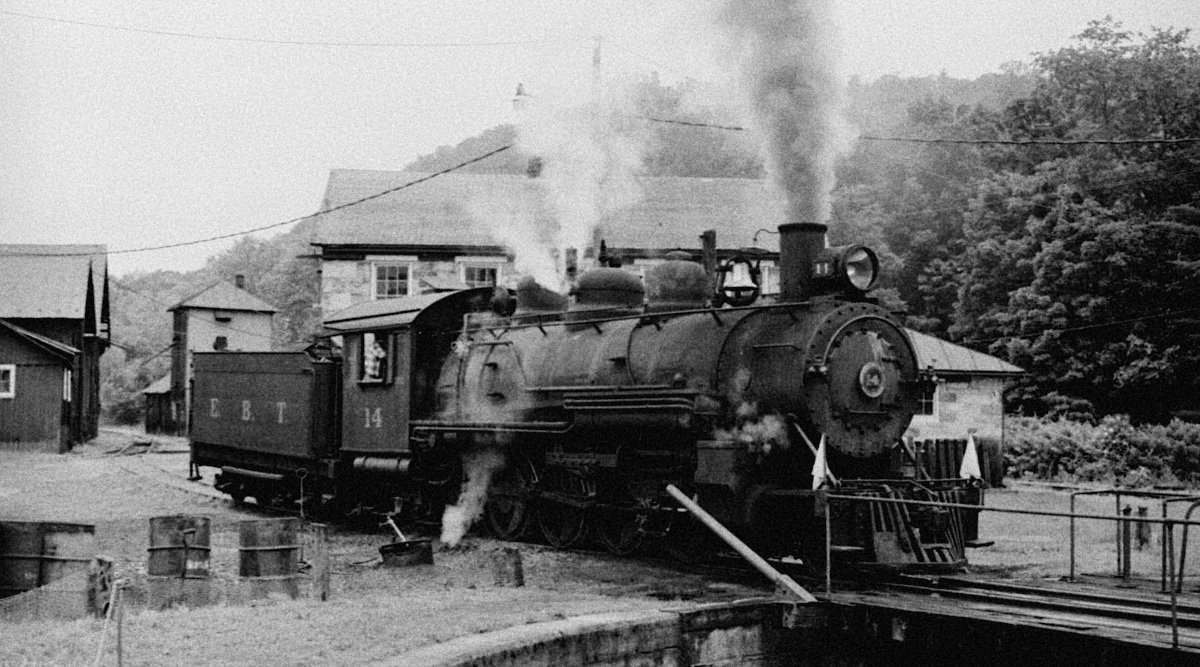
Rockhill, Pa / Jun 2003 / RWH
The East Broad Top is unusual in that it is a complete, original railroad rather than a collection of pieces from various locations, as most tourist railroads are. All six of the 3 ft narrow-gauge steam locomotives that operated on the railroad in its last years as a coal hauler are still on site, and some were used for the excursion trains.
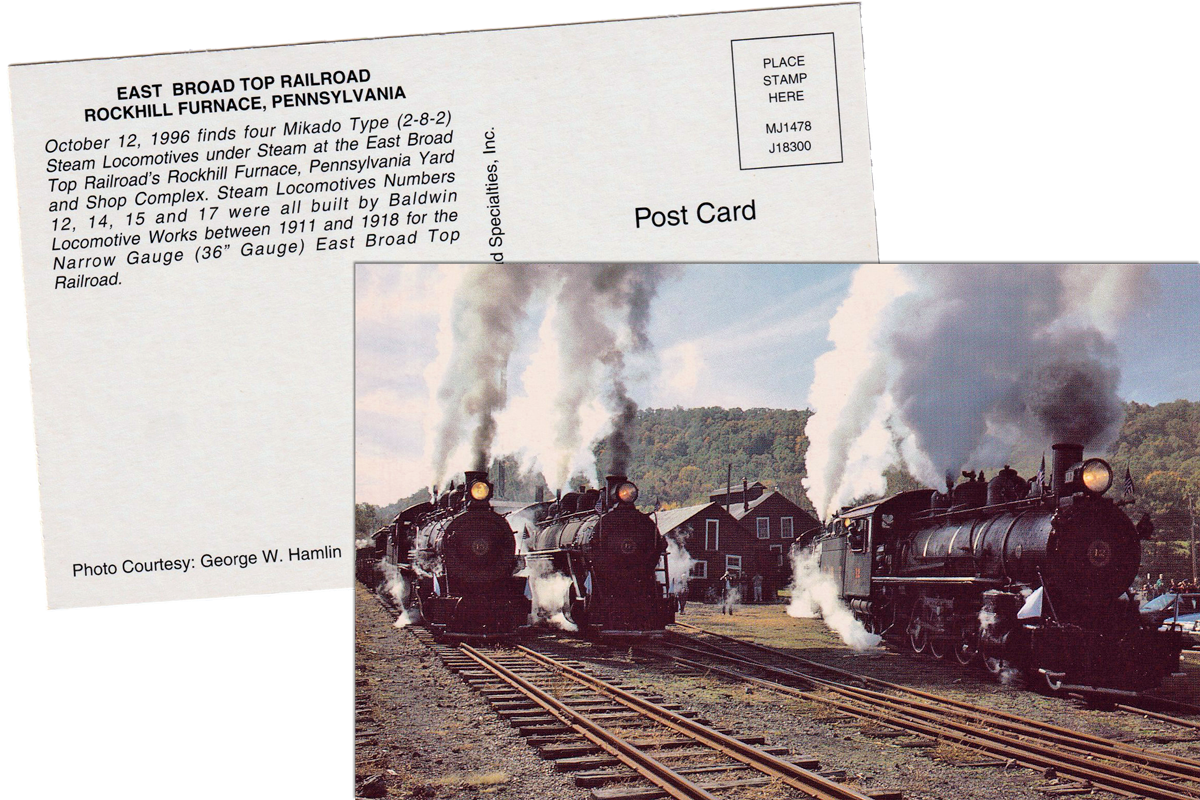
postcard / collection
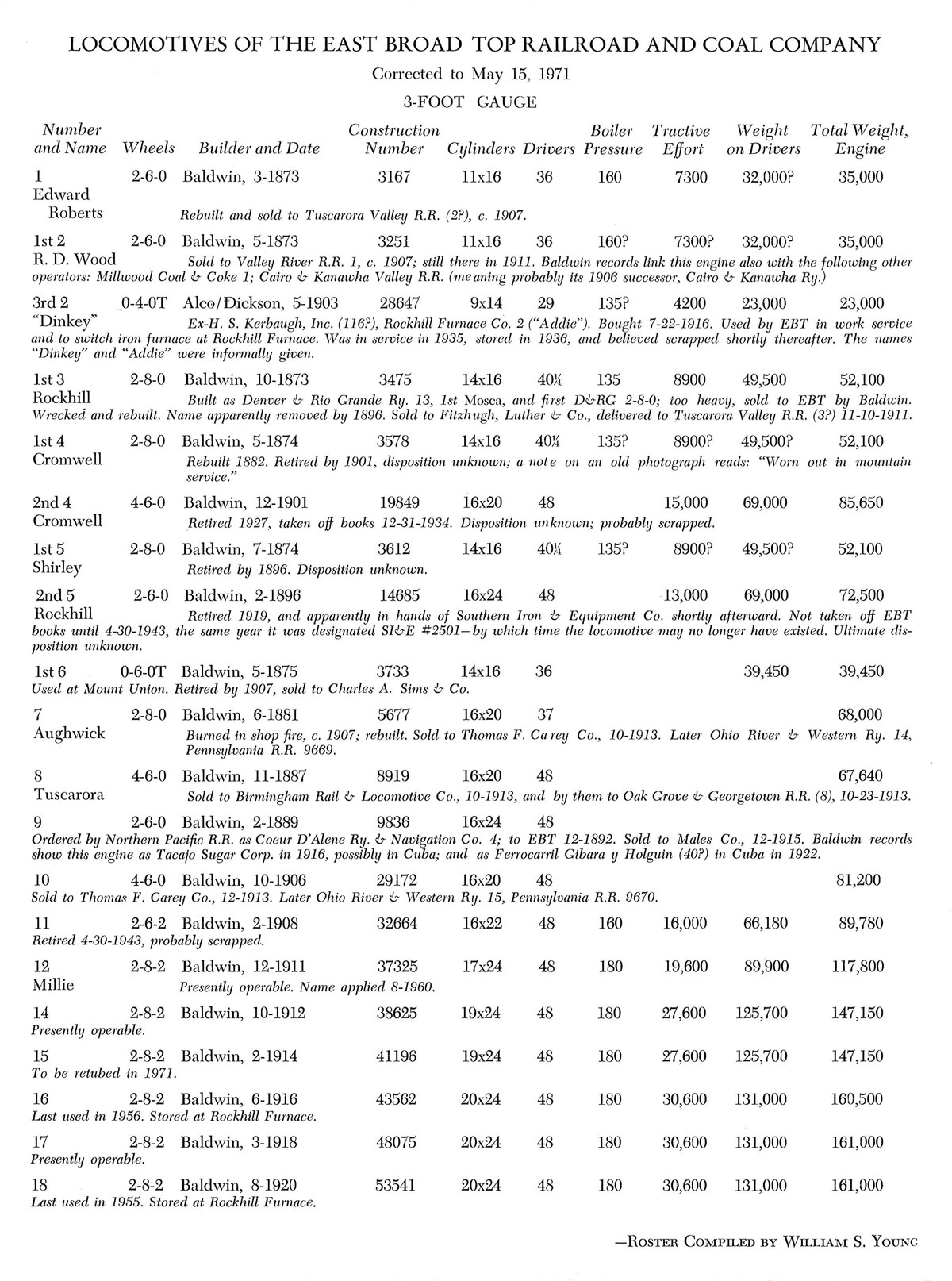
from Railroading Extra - 1971 / collection
Steamers
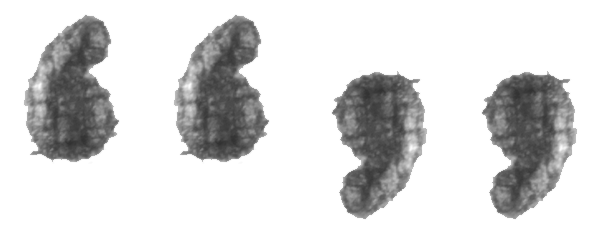
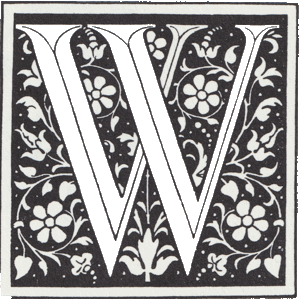 hen spring comes to the mountains of Pennsylvania, the valley of the Aughwick will echo to the time-honored sound of the steam whistles of the narrow gauge Baldwins of the East Broad Top as the road begins the third season of operation since its revival in 1960. That such a revival should occur is certainly the most outstanding railroad event in a period which has seen a great increase in projects dedicated to preserving rail road equipment of historic interest. That this year will mark the third year of operation as a historic property is proof enough of the sincere appreciation of the EBT's unique character by its new owner, Mr. Nick Kovalchick, for only such an interest could sustain the project during these formative years as it struggles to achieve the recognition of the general public and the publicity which is necessary to make it a self-supporting enterprise.
hen spring comes to the mountains of Pennsylvania, the valley of the Aughwick will echo to the time-honored sound of the steam whistles of the narrow gauge Baldwins of the East Broad Top as the road begins the third season of operation since its revival in 1960. That such a revival should occur is certainly the most outstanding railroad event in a period which has seen a great increase in projects dedicated to preserving rail road equipment of historic interest. That this year will mark the third year of operation as a historic property is proof enough of the sincere appreciation of the EBT's unique character by its new owner, Mr. Nick Kovalchick, for only such an interest could sustain the project during these formative years as it struggles to achieve the recognition of the general public and the publicity which is necessary to make it a self-supporting enterprise.
National Railway Historical Society Bulletin / spring 1962
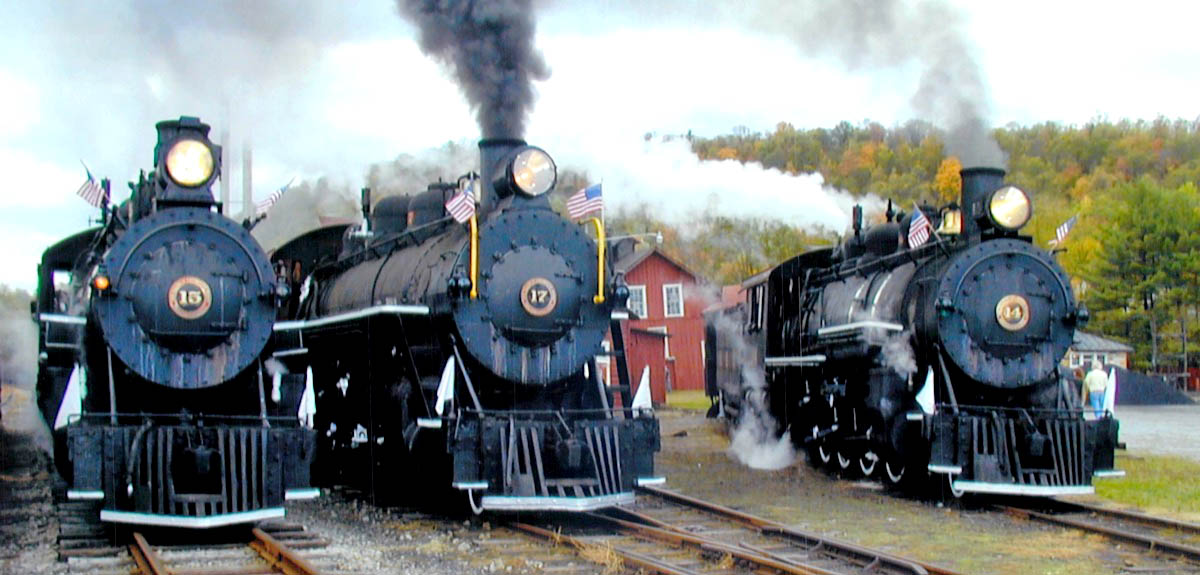
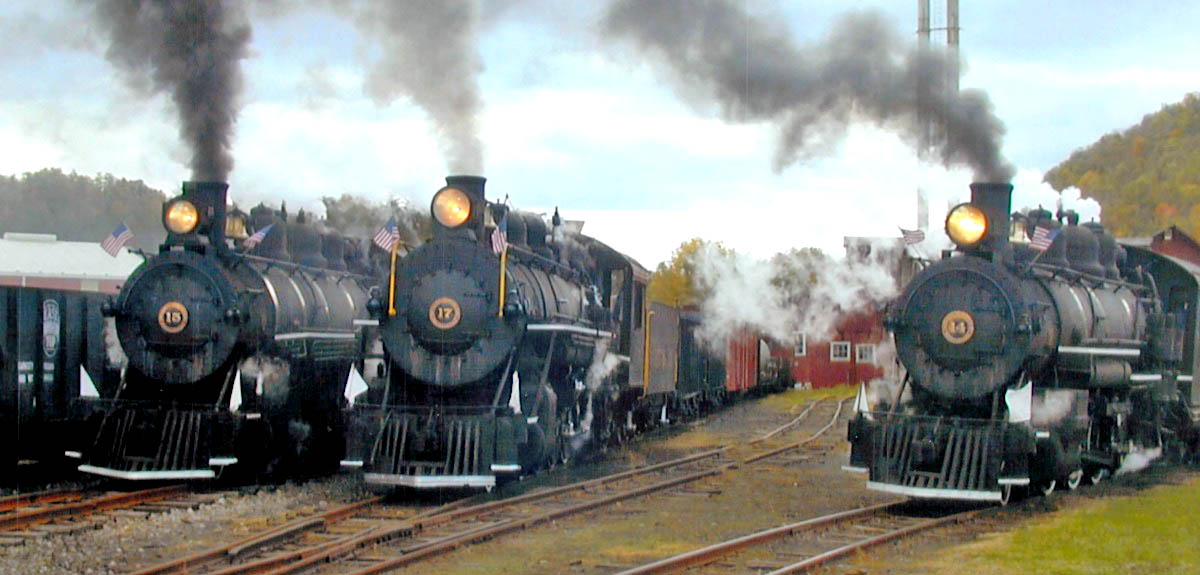
Rockhill, Pa / Oct 1999 / Ray Leader
HawkinsRails thanks the family of the late Ray Leader for use of his East Broad Top steam photos



East Broad Top #12
180 psi boiler, 19,600 tractive effort
named "Millie" in 1960
stored out of service
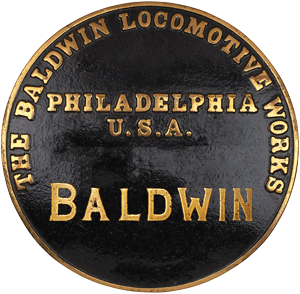
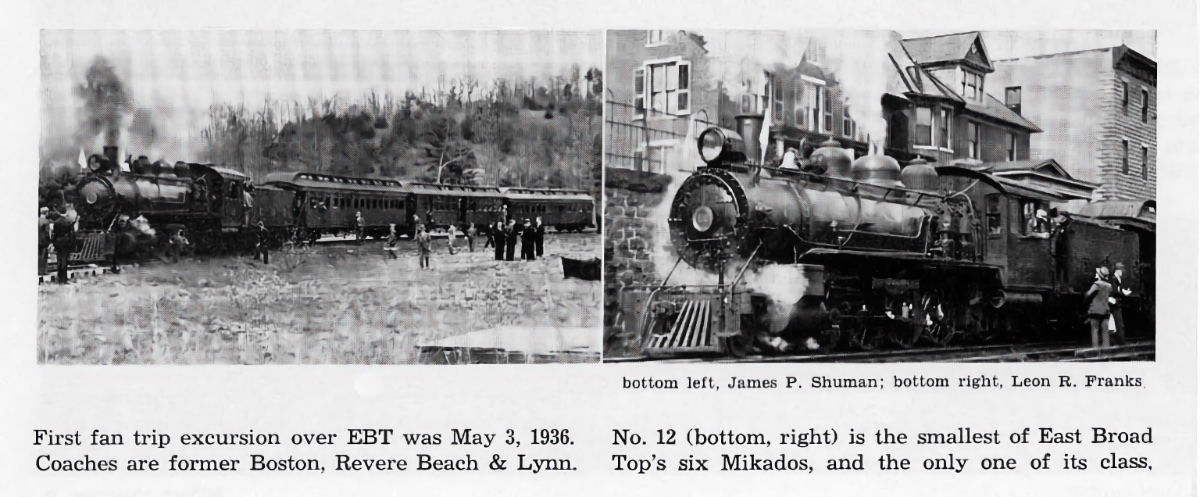
from TRAINS magazine - Aug 1941 / collection
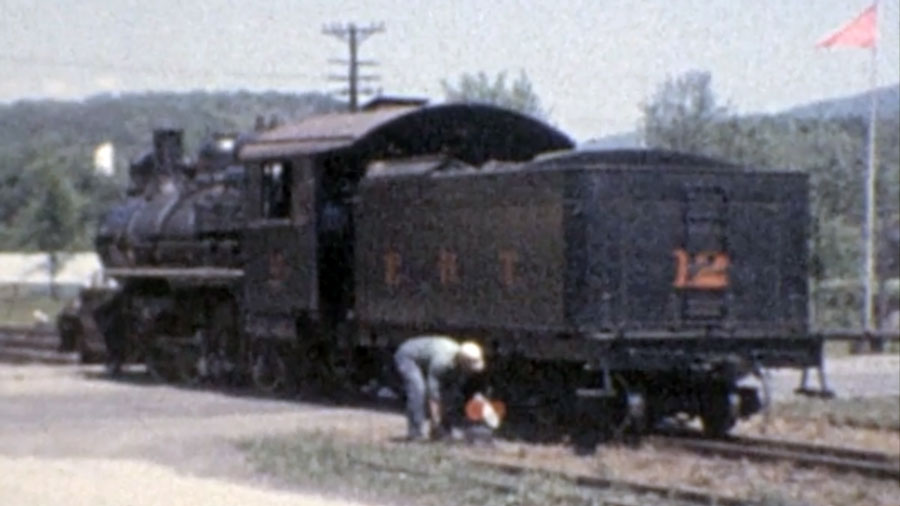
Rockhill, Pa / Jun 1960 / JCH
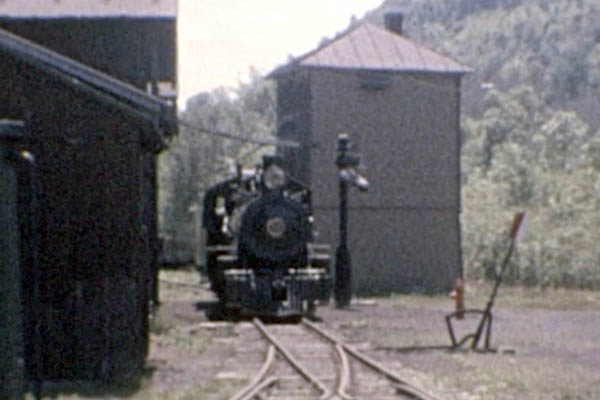
Rockhill, Pa / Jun 1960 / JCH
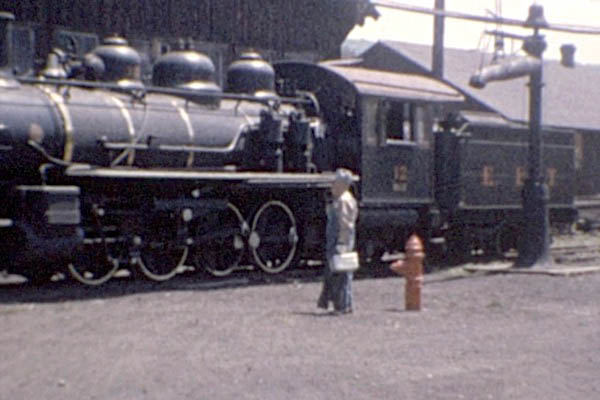
Rockhill, Pa / Jun 1960 / JCH
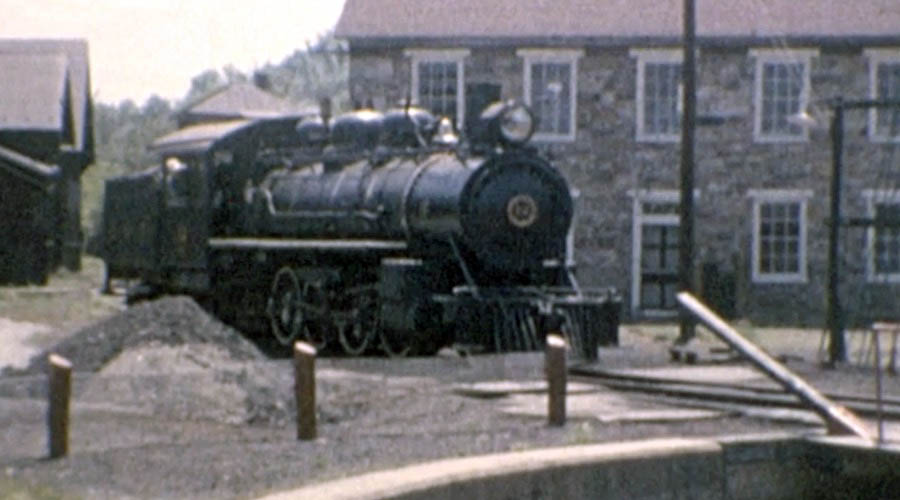
Rockhill, Pa / Jun 1960 / JCH
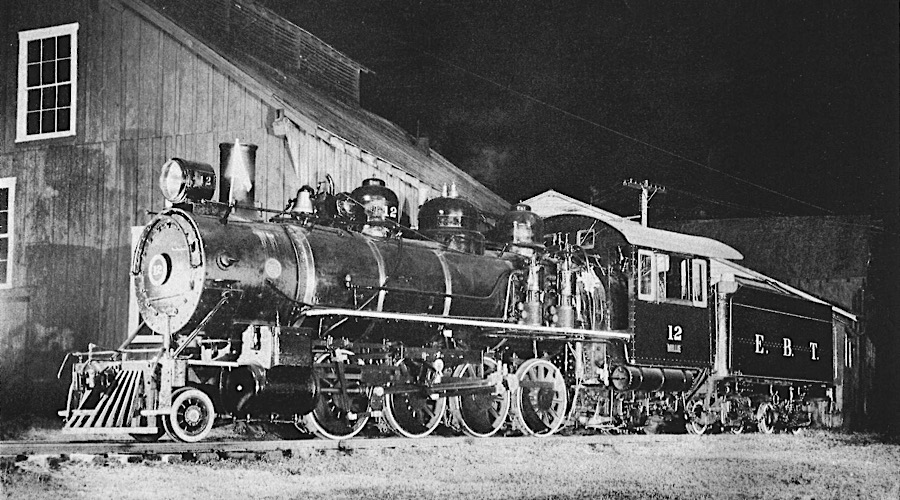
from Steam Locomotive & Railroad Tradition #6 - Dec 1960 / collection
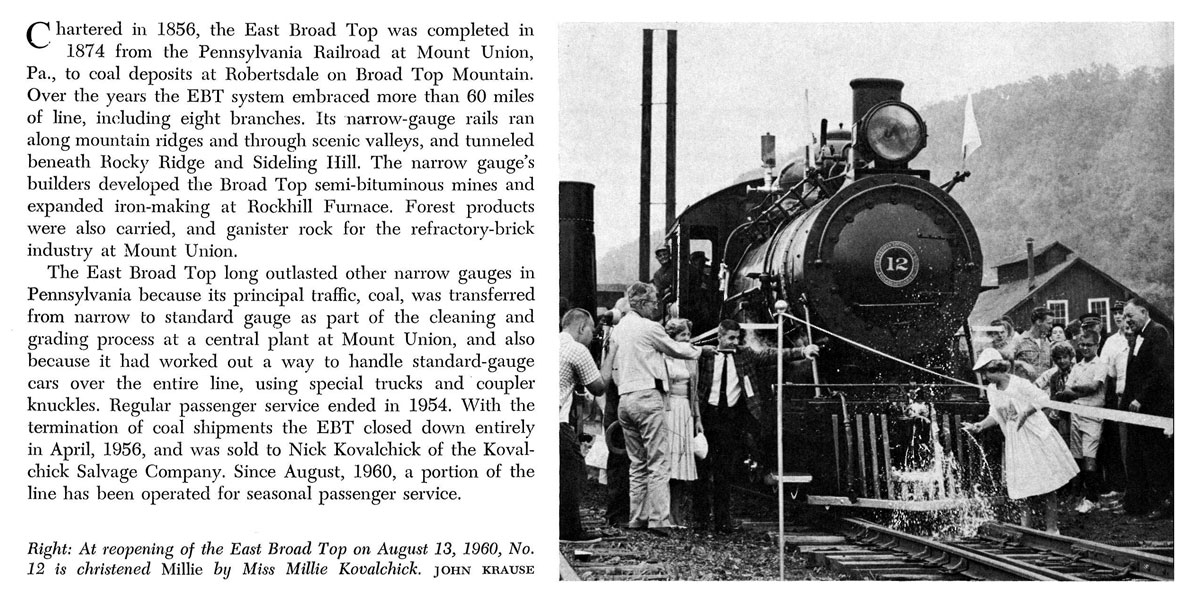
from Railroading Extra - 1971 / collection

from Railroading magazine - Jul 1971 / collection
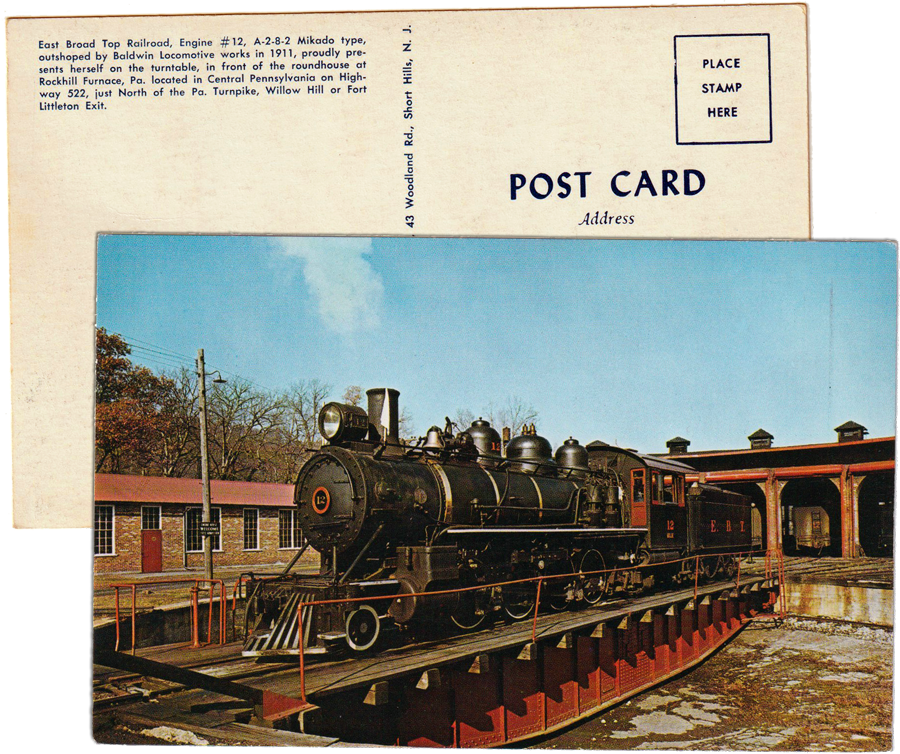
postcard / collection
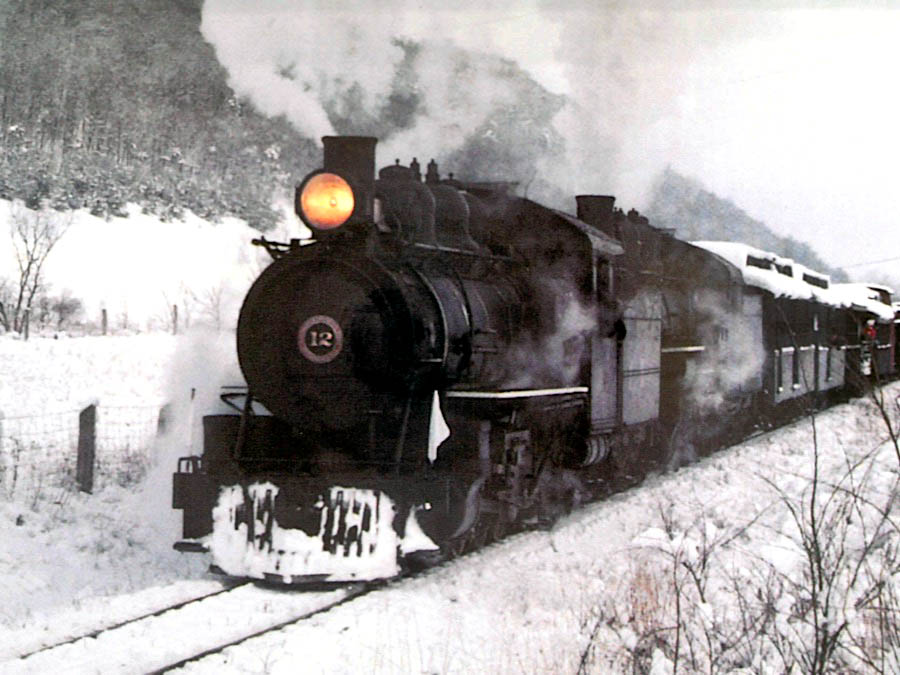
Orbisonia, Pa / 1977 / Ray Leader collection
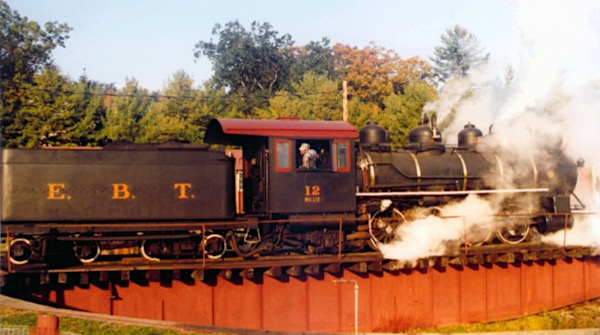
Rockhill, Pa / Nov 1996 / Ray Leader
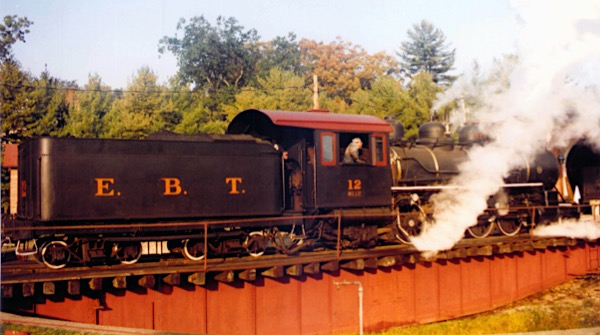
Rockhill, Pa / Nov 1996 / Ray Leader
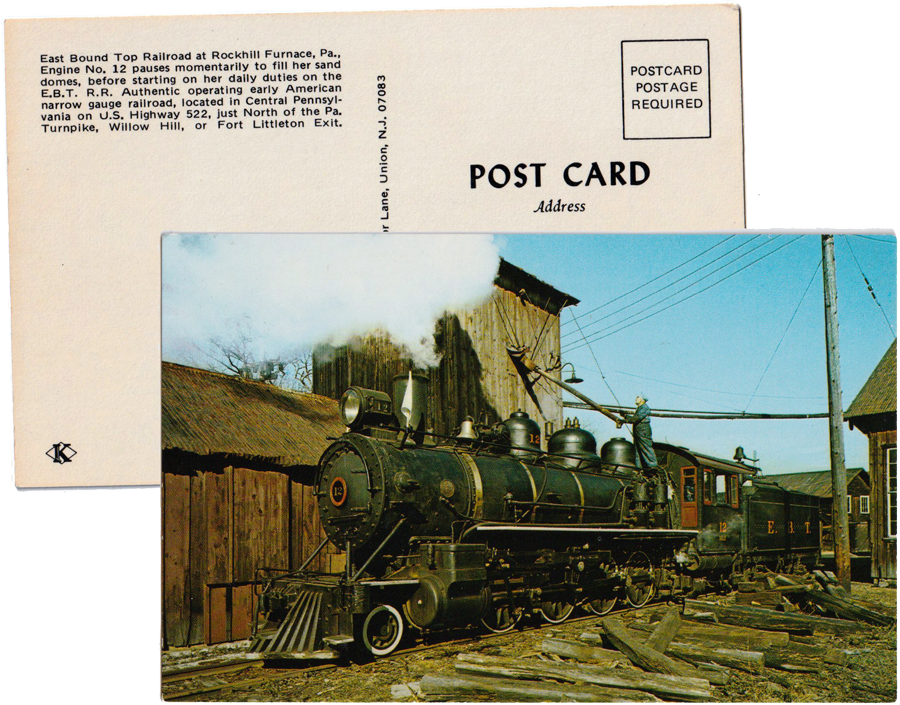
postcard / collection
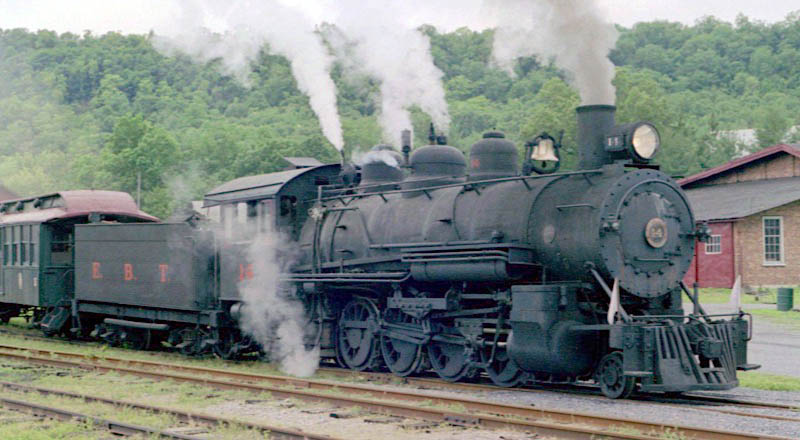
East Broad Top #14
Rockhill, Pa / Jun 2003 / RWH


East Broad Top #14
180 psi boiler, 27,600 tractive effort
stored out of service

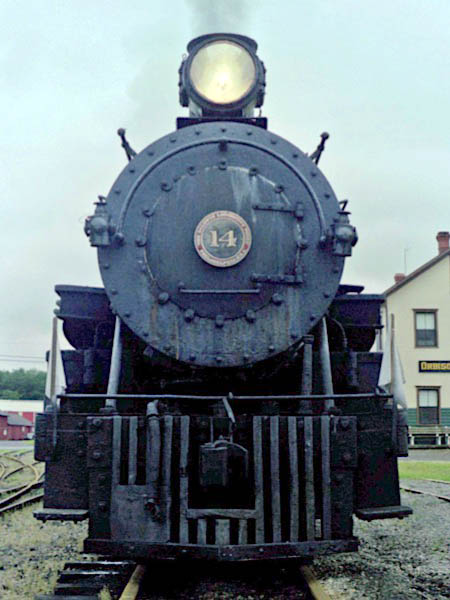
Jun 2003 / RWH
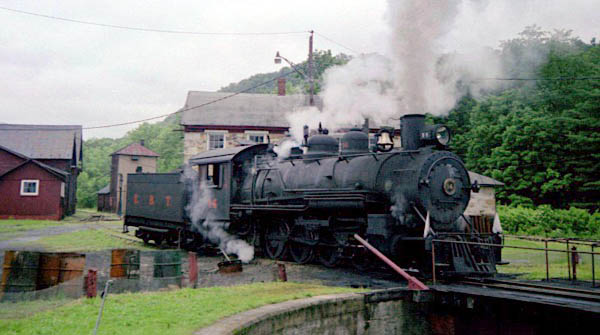
Rockhill, Pa / Jun 2003 / RWH
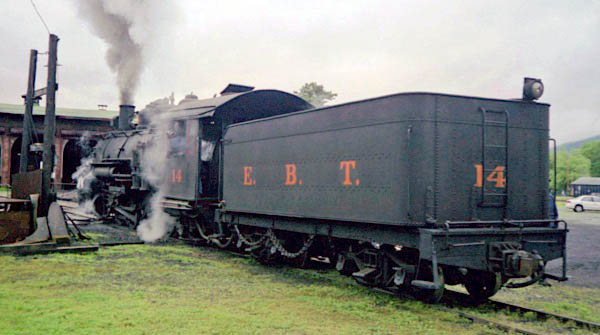
Rockhill, Pa / Jun 2003 / RWH
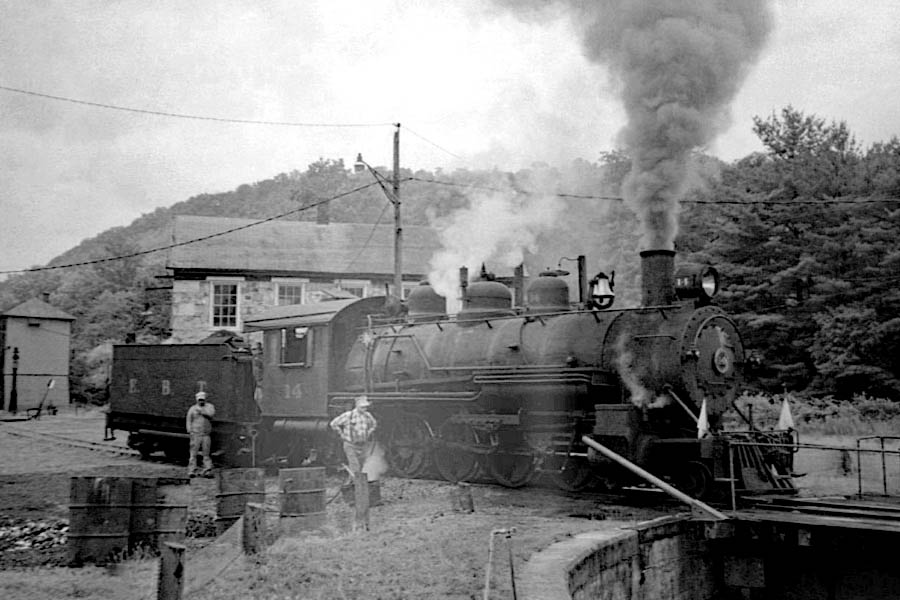
Rockhill, Pa / Jun 2003 / RWH
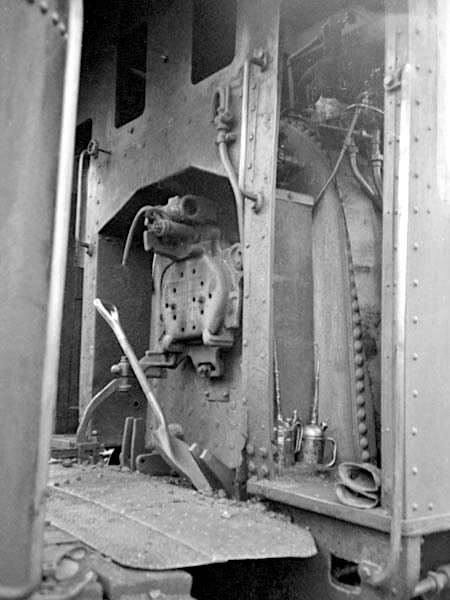
Jun 2003 / RWH
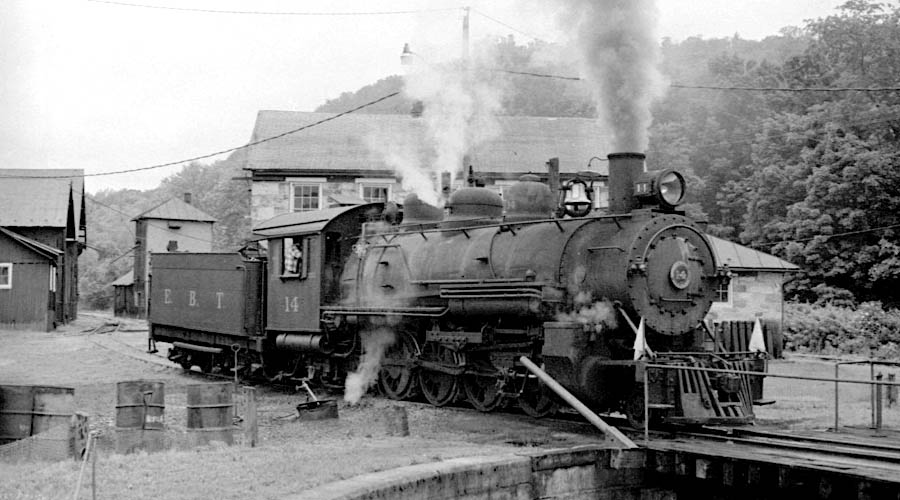
Rockhill, Pa / Jun 2003 / RWH
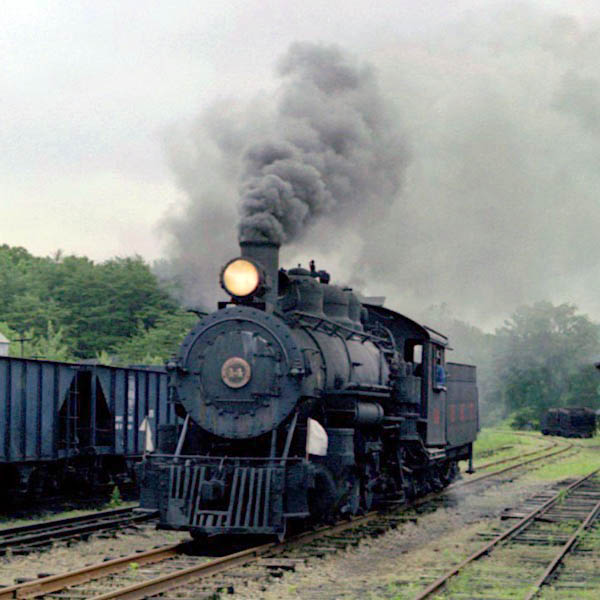
Jun 2003 / RWH
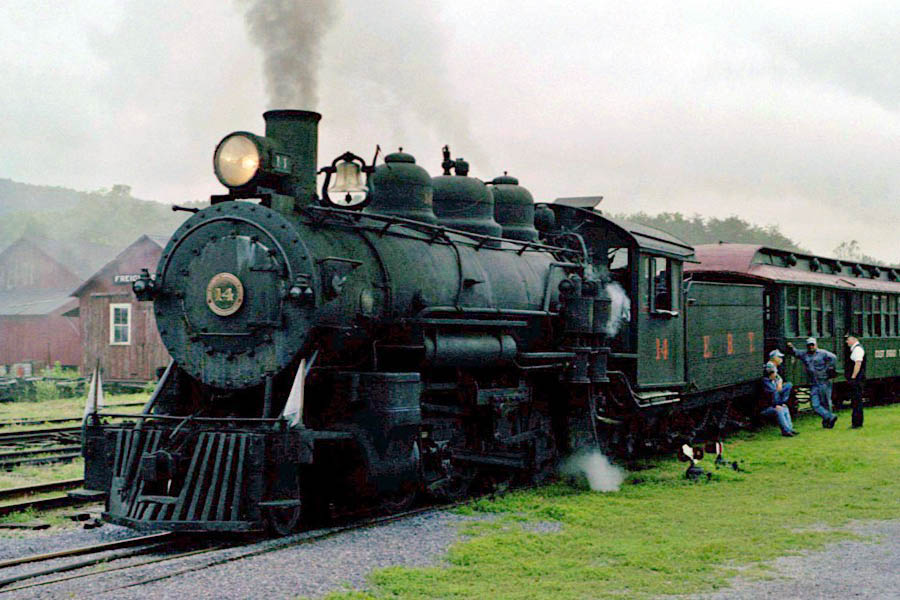
Rockhill, Pa / Jun 2003 / RWH
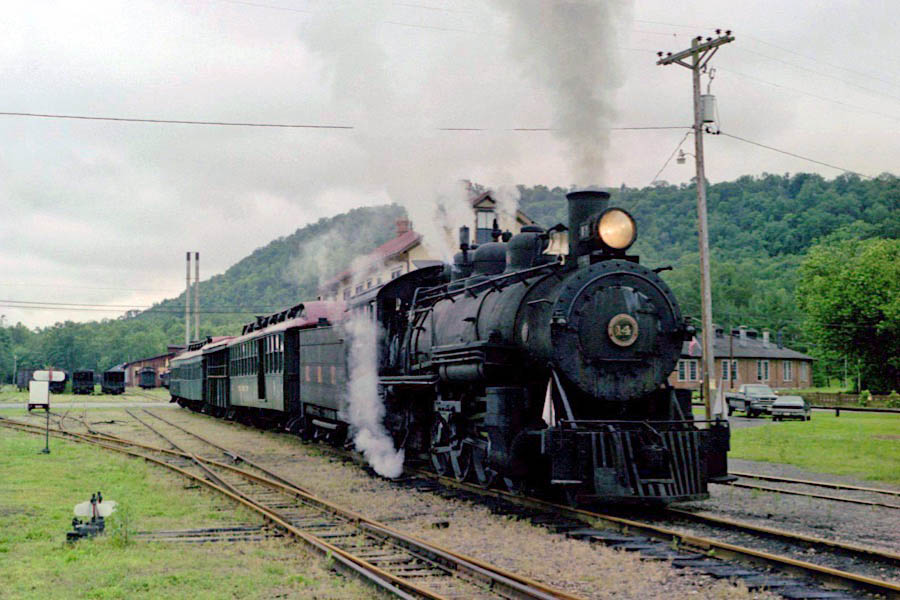
Rockhill, Pa / Jun 2003 / RWH
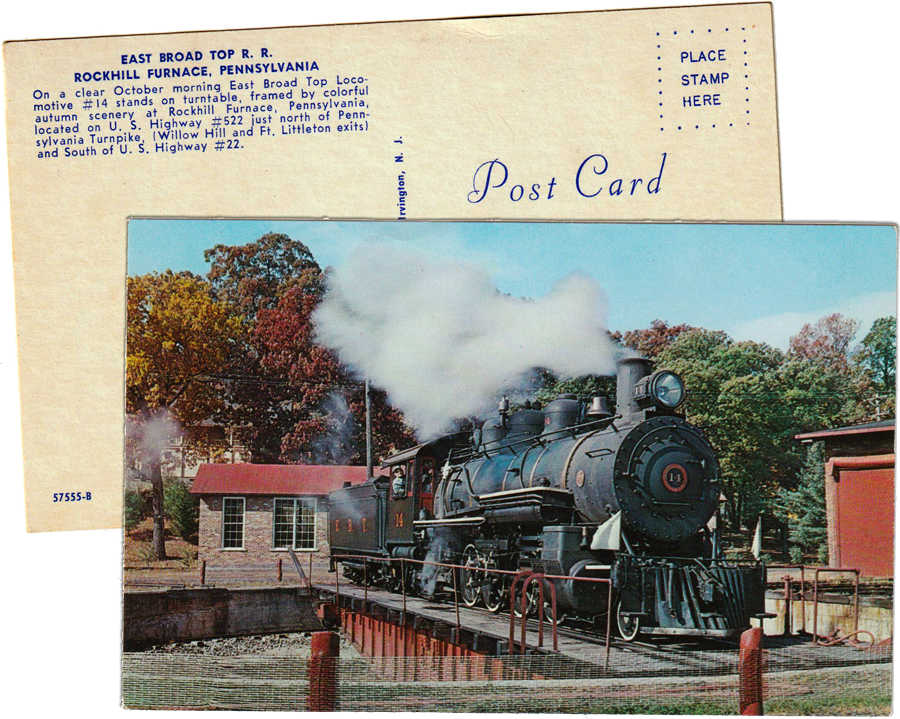
postcard / collection
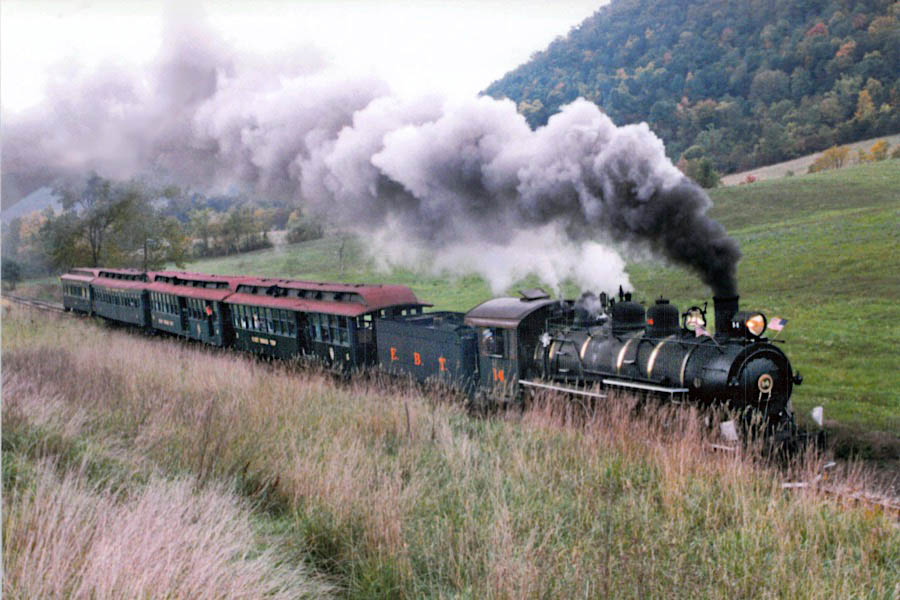
Orbisonia, Pa / Oct 1999 / Ray Leader
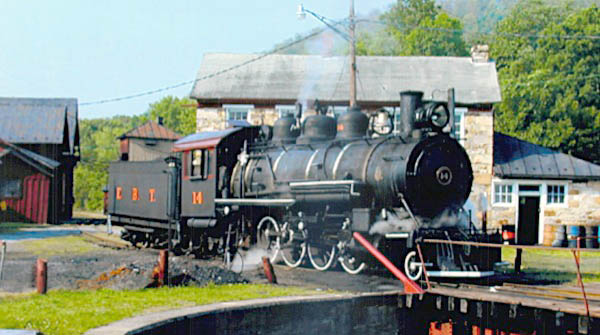
Rockhill, Pa / Oct 1999 / Ray Leader
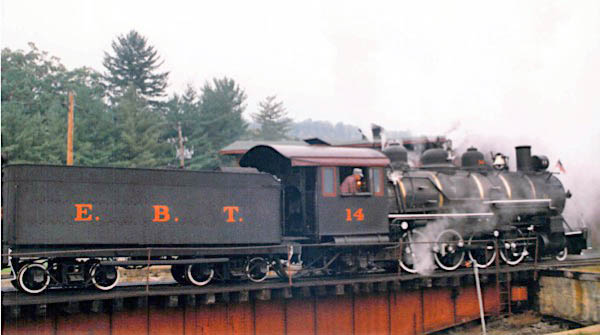
Rockhill, Pa / Oct 1999 / Ray Leader
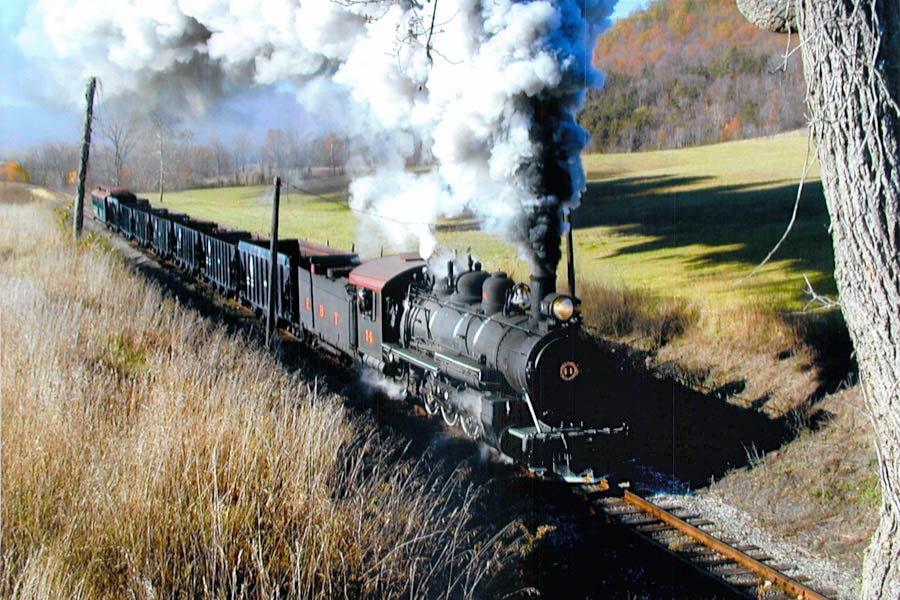
Orbisonia, Pa / Oct 1999 / Ray Leader
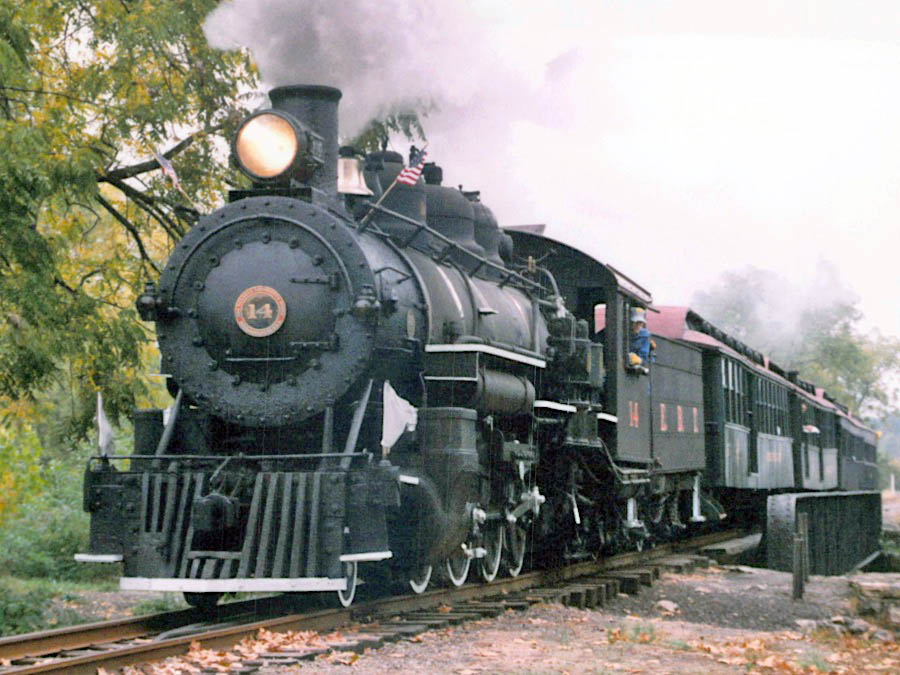
Orbisonia, Pa / Oct 1999 / Ray Leader
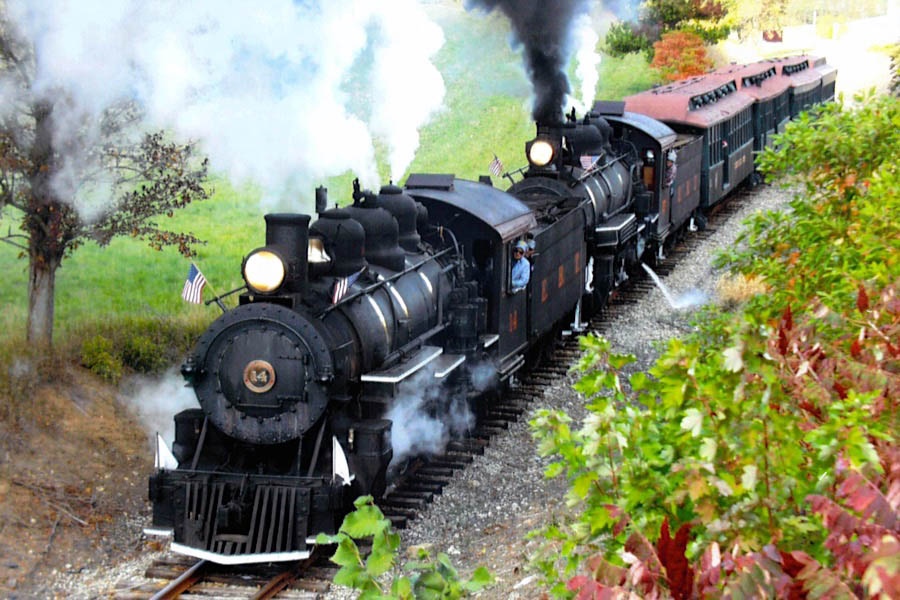
Orbisonia, Pa / Oct 1999 / Ray Leader
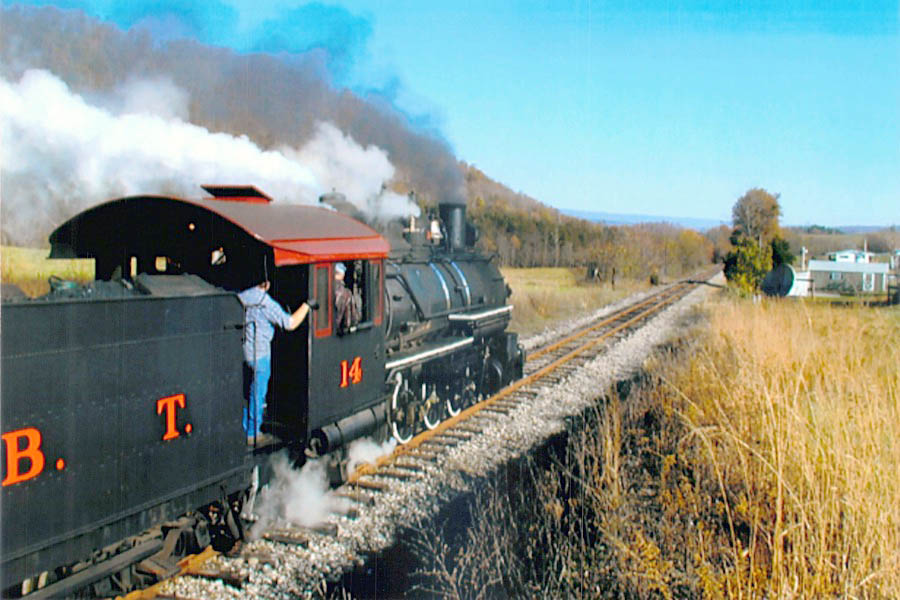
Orbisonia, Pa / Oct 1999 / Ray Leader
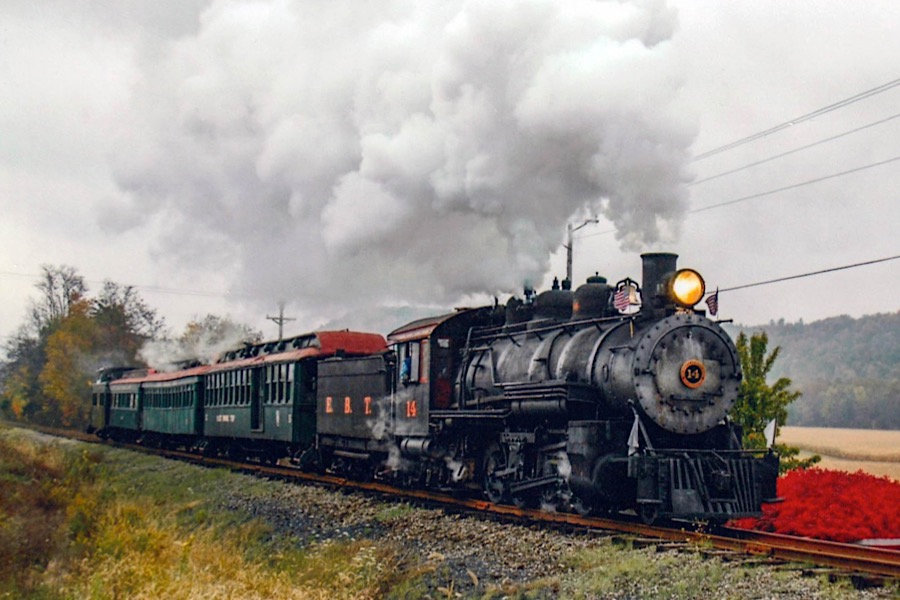
Orbisonia, Pa / collection
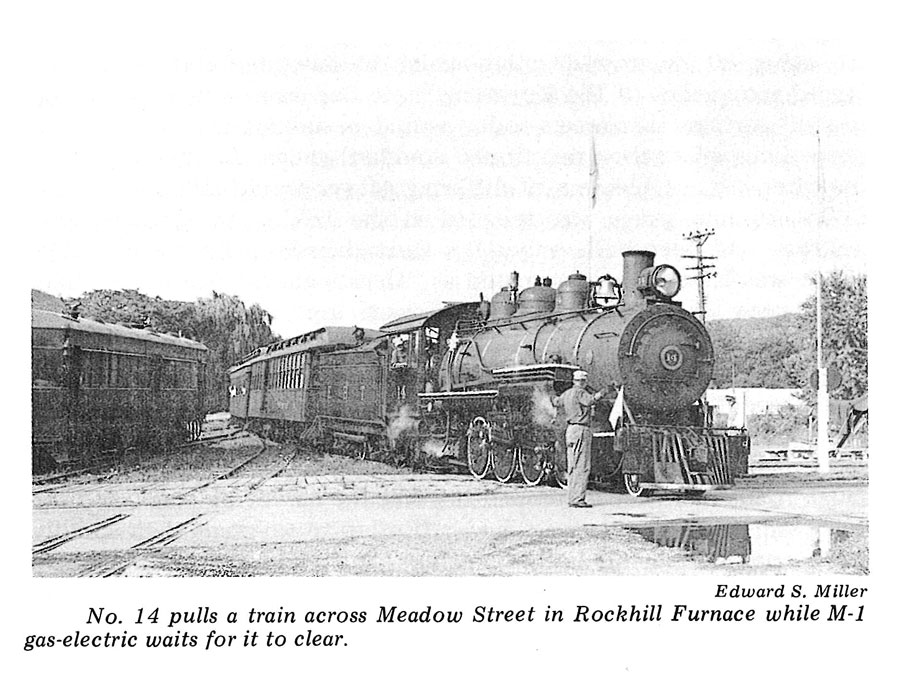
from Ramble into the Past on the East Broad Top - 1971 / collection
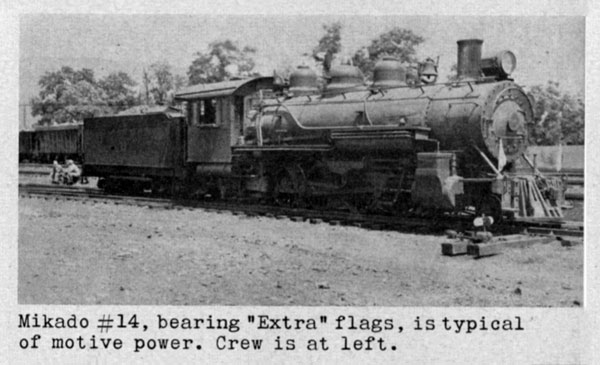
from Railroad Model Craftsman - 1952 / collection


East Broad Top #15
160 psi boiler, 19,600 tractive effort
stored out of service

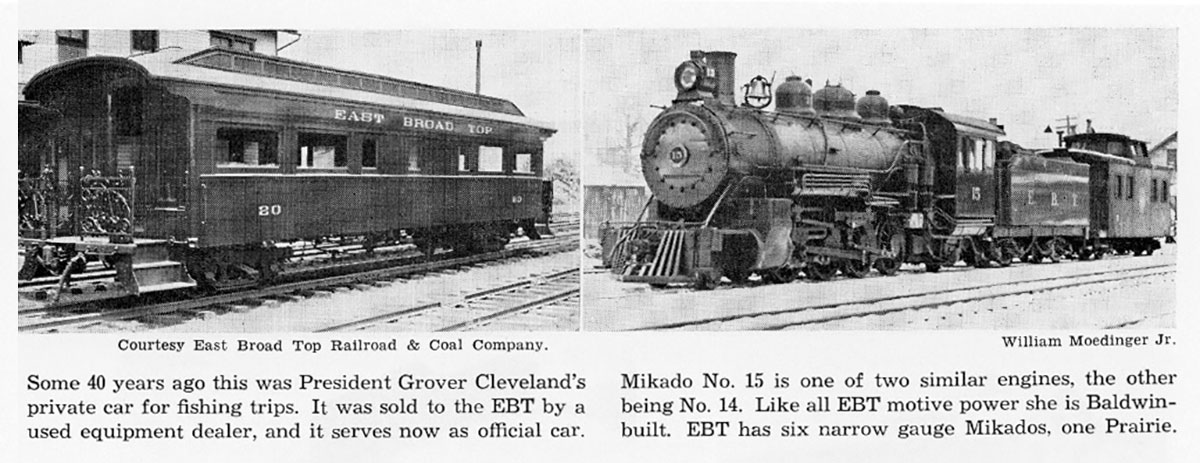
from TRAINS magazine - Aug 1941 / collection
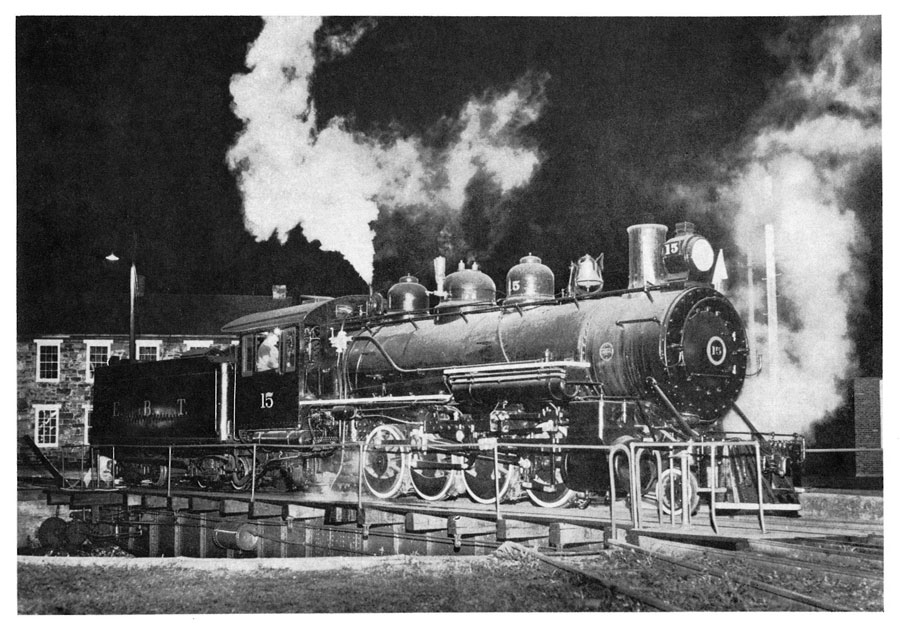
from Railroading Extra - 1971 / John Krause photo / collection
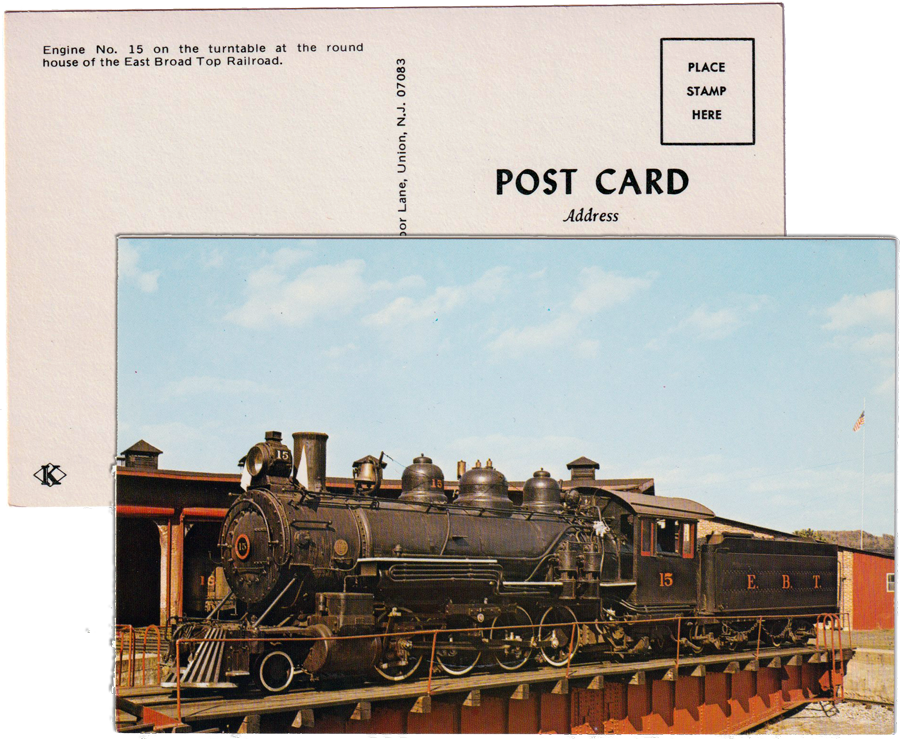
postcard / collection
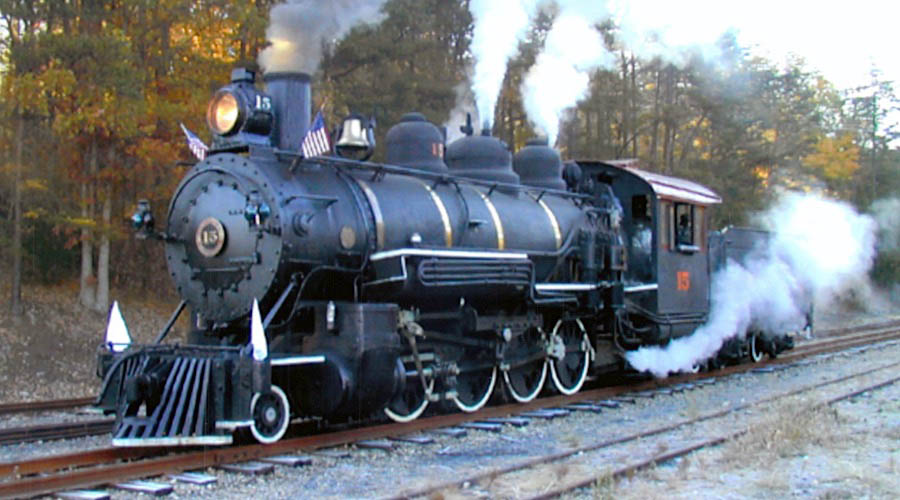
Rockhill, Pa / Oct 1999 / Ray Leader
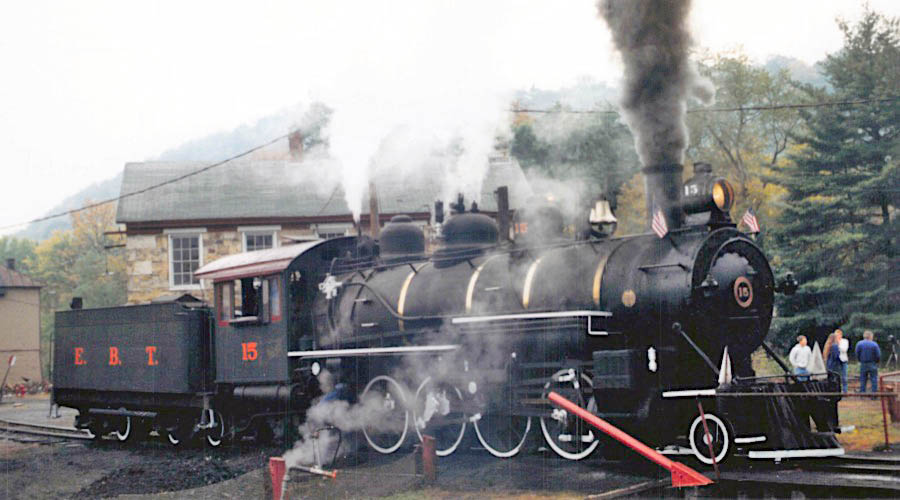
Rockhill, Pa / Oct 1999 / Ray Leader
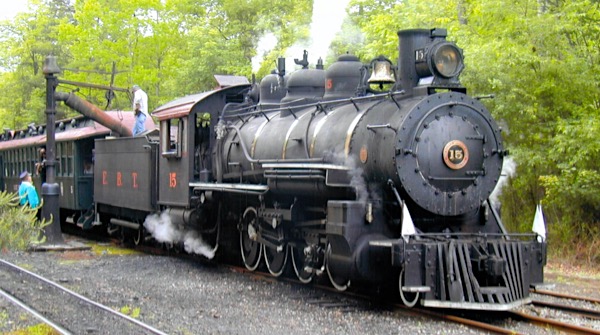
Rockhill, Pa / Oct 1999 / Ray Leader
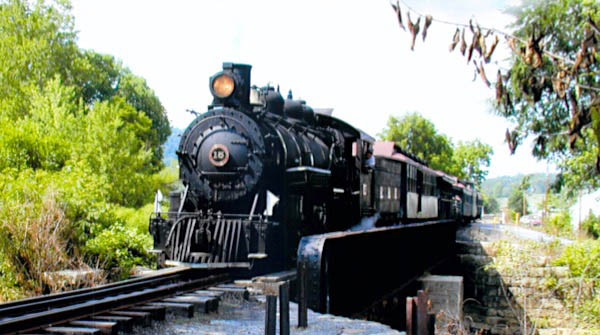
Orbisonia, Pa / Oct 1999 / Ray Leader
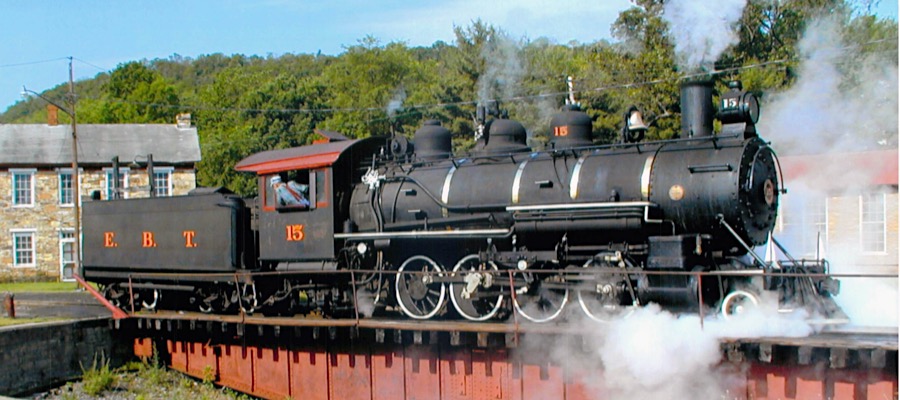
Rockhill, Pa / Oct 1999 / Ray Leader
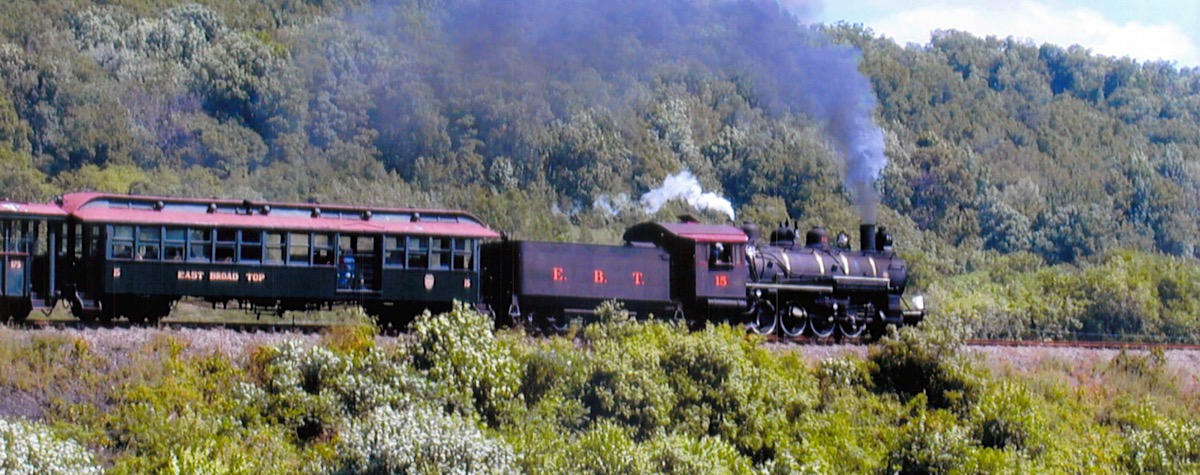
Orbisonia, Pa / Oct 1999 / Ray Leader
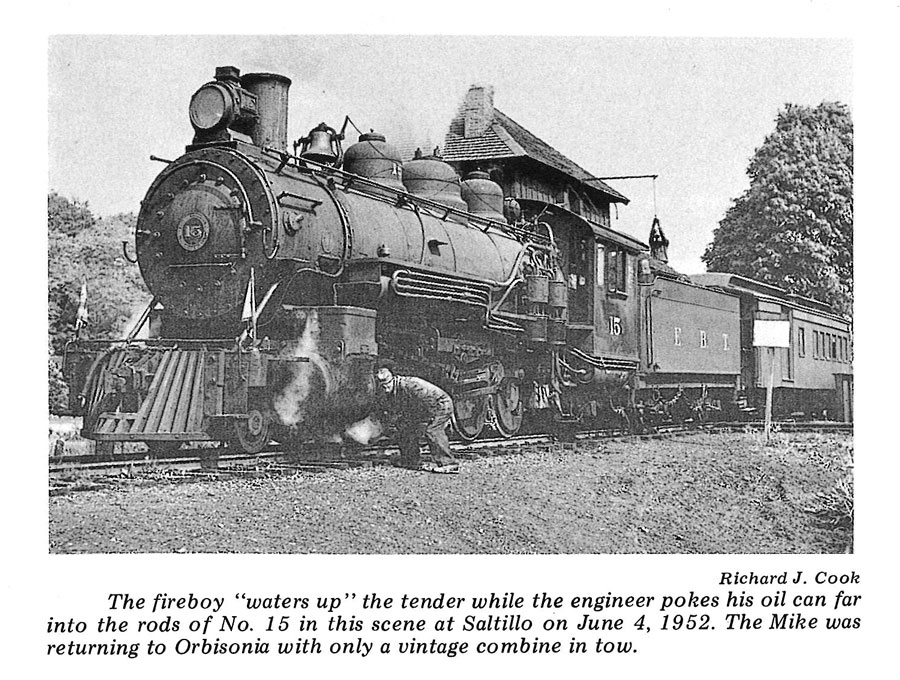
from Ramble into the Past on the East Broad Top - 1971 / collection
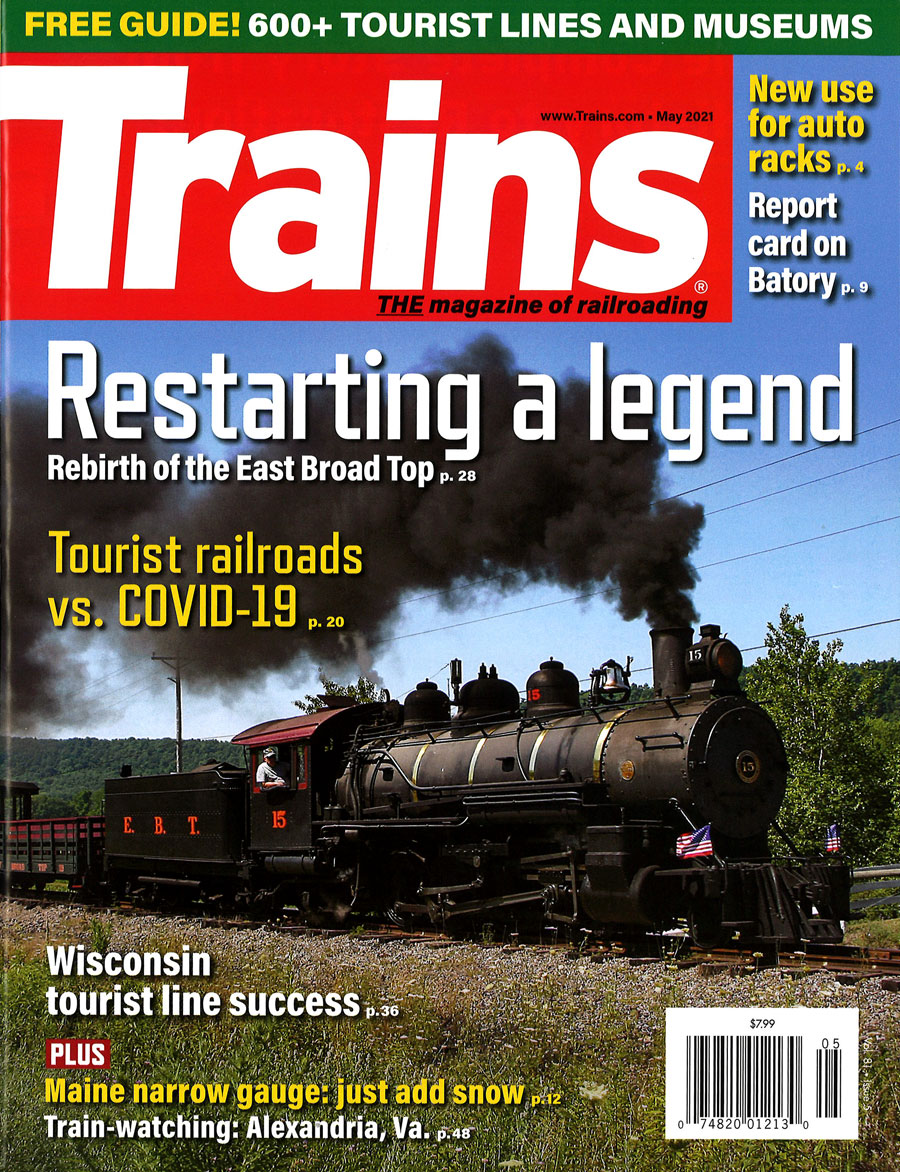
collection
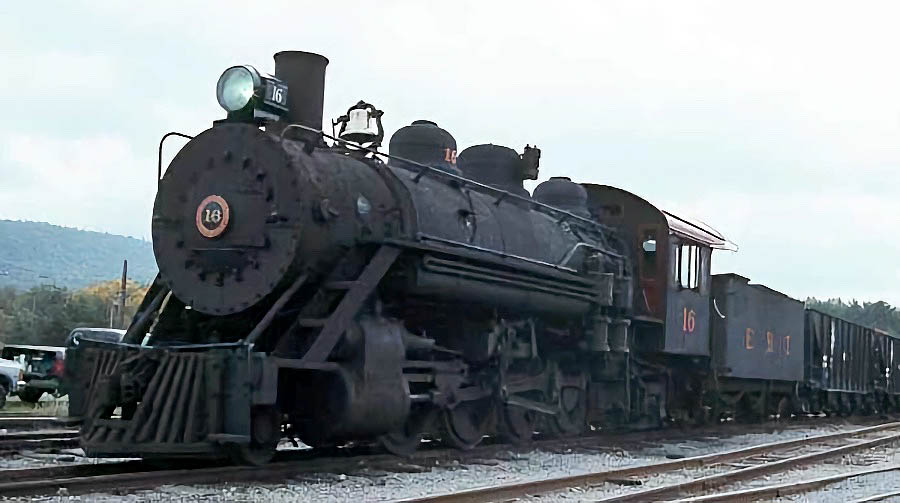
East Broad Top #16
Rockhill, Pa / 2000 / Christopher D. Coleman


East Broad Top #16
180 psi boiler, 30,600 tractive effort
last run in 1956 when EBT closed
under restoration, 2020

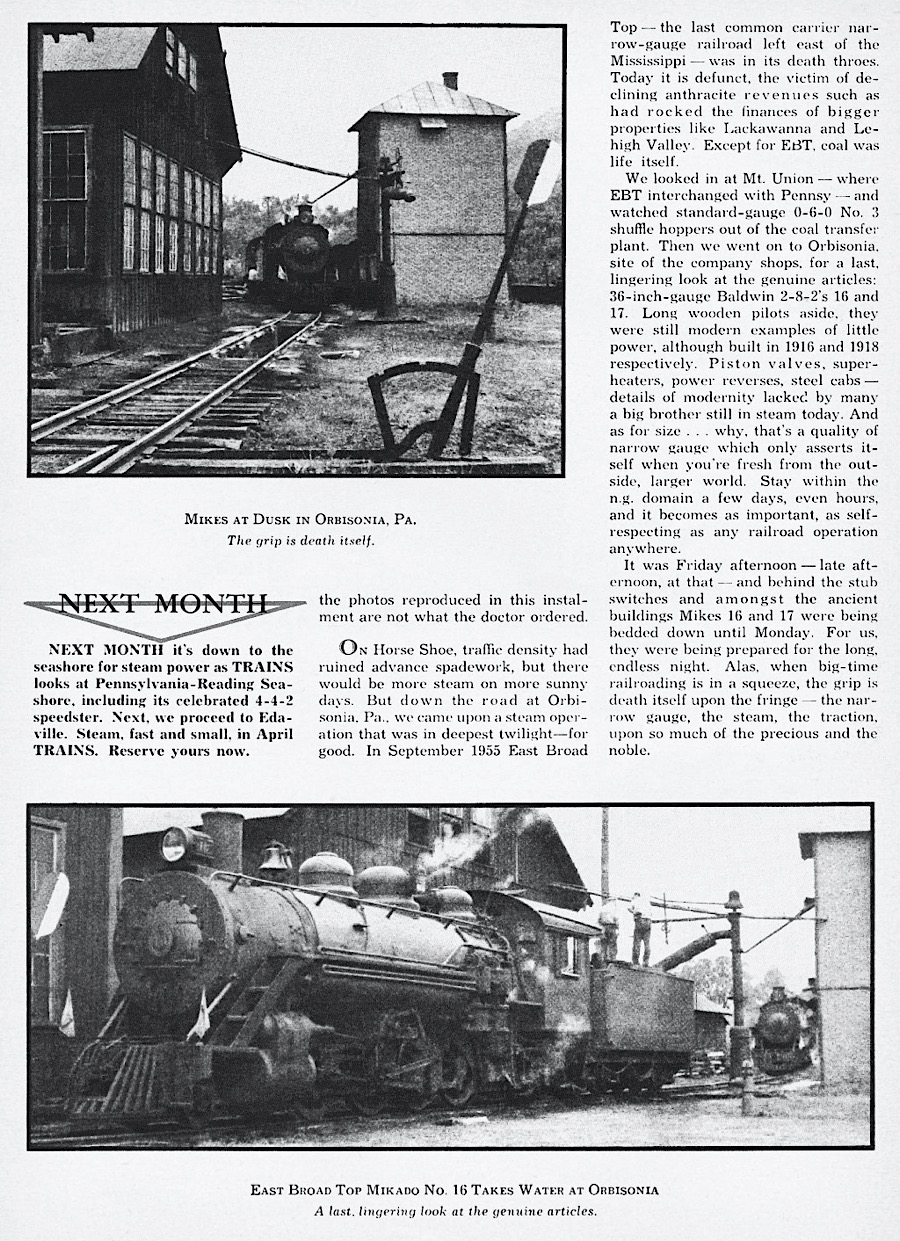
from TRAINS magazine - Mar 1957 / collection
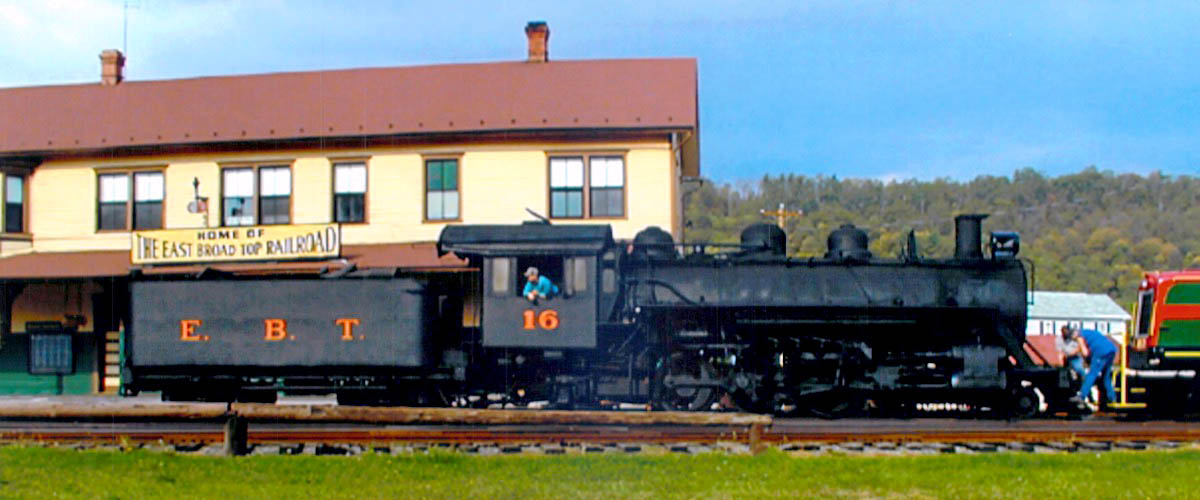
Rockhill, Pa / Oct 1999 / Ray Leader
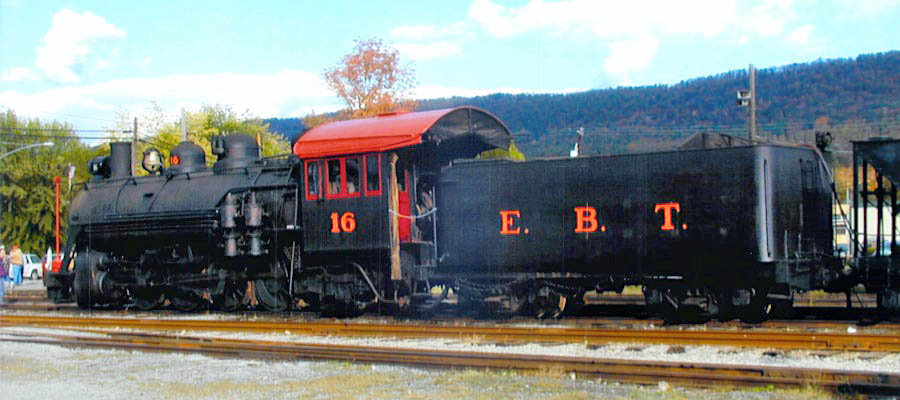
Ray Leader
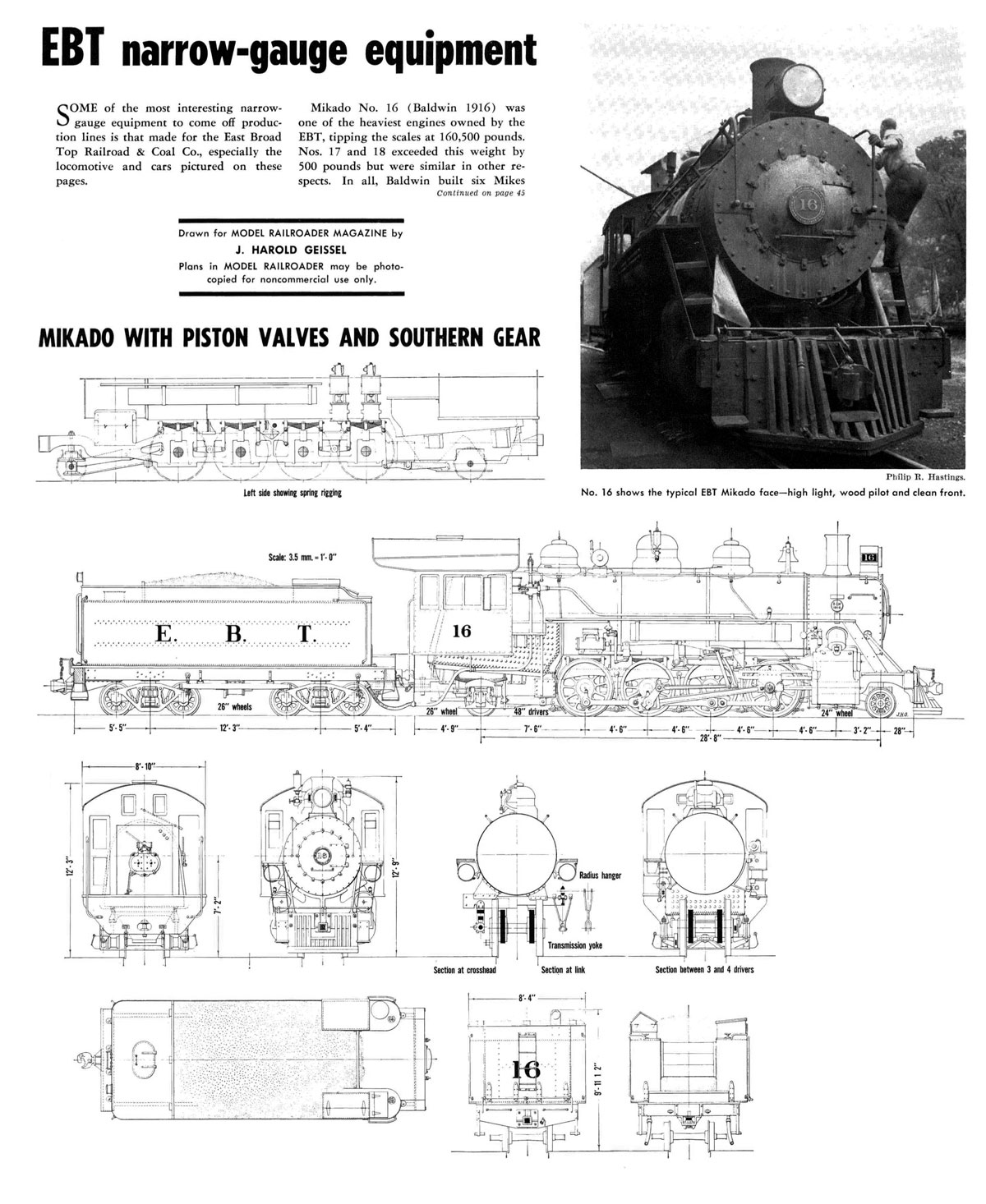
from Model Railroader magazine - Sep 1961 / collection
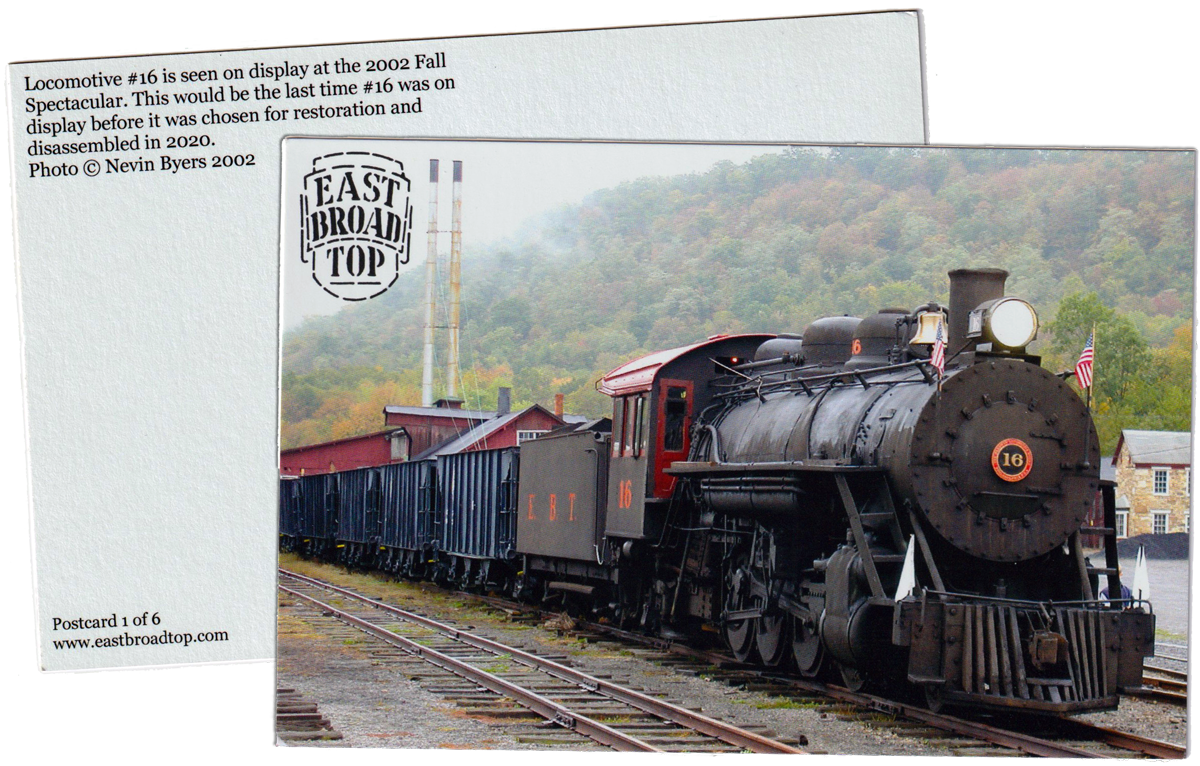
postcard / collection

 #16 was the first of the largest group of Mikados. They incorporated new features like piston valves and superheating. As a test of houer power she was able to pull 60 empties from Mount Union to Rockhill.
#16 and her sisters were the pricipal engines in the waning yeras of the railroad. She has not been reoprated since the 1956 closing, due to her large size and more complex mechanics. Plans were announced around 1984 to reactivate her, but #14 was rebuilt instead likely due to the lack of current papaerwork on #16. She was the last locmotive to be overhauled before the closing and so is a prime candidate for restoration.
#16 was the first of the largest group of Mikados. They incorporated new features like piston valves and superheating. As a test of houer power she was able to pull 60 empties from Mount Union to Rockhill.
#16 and her sisters were the pricipal engines in the waning yeras of the railroad. She has not been reoprated since the 1956 closing, due to her large size and more complex mechanics. Plans were announced around 1984 to reactivate her, but #14 was rebuilt instead likely due to the lack of current papaerwork on #16. She was the last locmotive to be overhauled before the closing and so is a prime candidate for restoration.
#16 along with sister #17 has a welded steel tender rather than riveted. According to reports, both came with rivited tenders and new welded tender tanks were purchased from Baldwin in the late 40's. The same reports say that the boiler is a Baldwin built replacement.
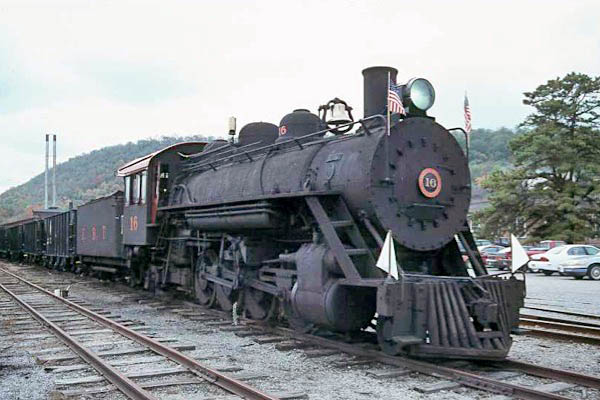 On August 10, 1985, Joe Kovalchick announced his intention to reactivate #16. In the end #14 was rebuilt instead, reportedly because #16's boiler paperwork had been destroyed by a roof leak. #16 was pulled out of the roundhouse for the first time since 1955 in July 1987 for an NMRA group. In the 1991 she and #18 were pulled out for display with the two locos facing each other across Meadow Street.
On August 10, 1985, Joe Kovalchick announced his intention to reactivate #16. In the end #14 was rebuilt instead, reportedly because #16's boiler paperwork had been destroyed by a roof leak. #16 was pulled out of the roundhouse for the first time since 1955 in July 1987 for an NMRA group. In the 1991 she and #18 were pulled out for display with the two locos facing each other across Meadow Street.
With the purchase of the EBT in 2020 by the EBT Foundation, all the Mikados were evaluated as to which were the best candidates for return to service. #16 received a steam clenaing March 11, 2020 in preparation for her inspection. Along with #14, #16 was selected in early May 2020 for rebuild. Asbestos abatement occured in early May 2-9, 2020 in roundhosue stall 8. A succesful hydrostatic test was performed the week of May 18-22, 2020. Tear down of #16 began in April of 2020 and work continues as of this wiritng to return her to service in 2021. Work on the locomotive included rebuilding of the tender trucks, fabrication of a new tender tank by Curry Rail Services of Hollidaysburg, Pa, new ties on tender wheels, tender air system rebuilt, 3/4 of front tube sheet replaced, small parts of the door sheet repaired, replacing of staybolts, renewall of the generator and air pumps. As of 8-21-2021 restoration, renewal, or replacement of the following appliances and parts was reported as complete: Air tanks, dynamo, piping, two air pumps, two Hancock Inspirator injectors, new ceramic insulation, and new boiler jacketing. The first of the jacking started going on in late November 2021. The new tender tank was delivered to the EBT for the second time (first time after fabrication) after interior spray lining with epoxy, on 12-17-2021.
She is anticpated to be completed in late winter of 2021/2022.
Christopher D. Coleman's Old Eastie website
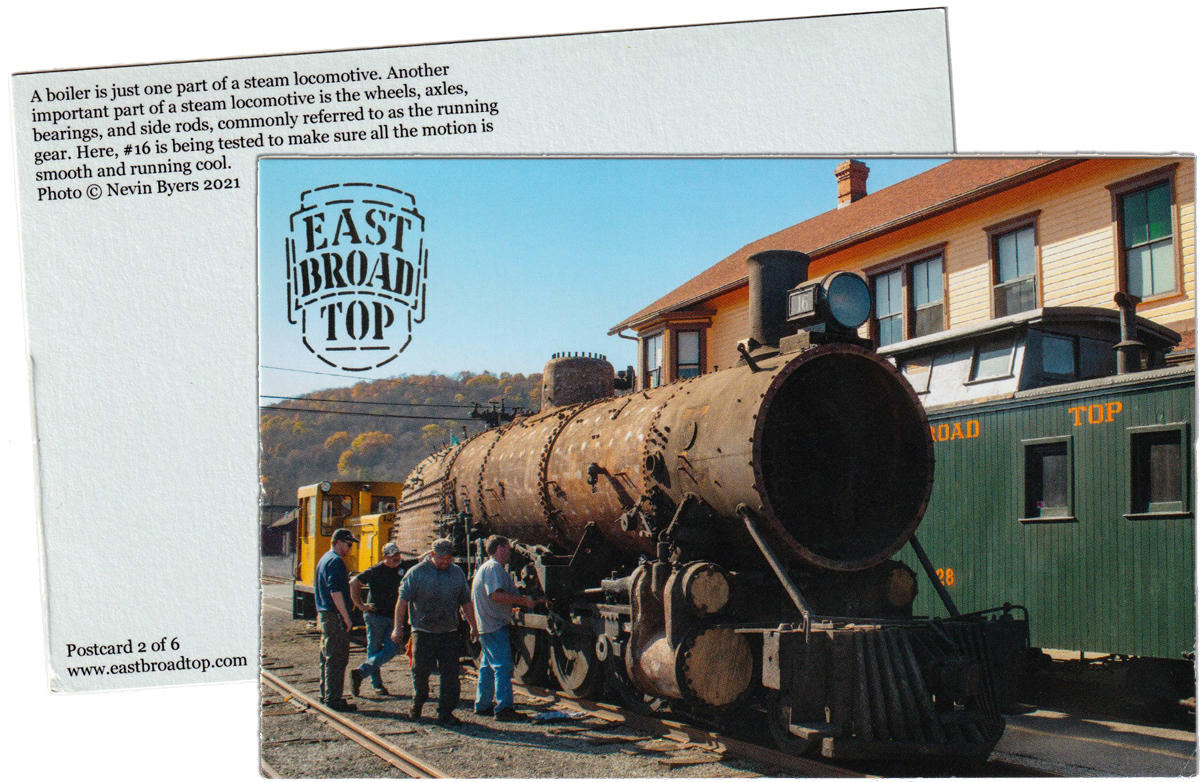
postcard / collection
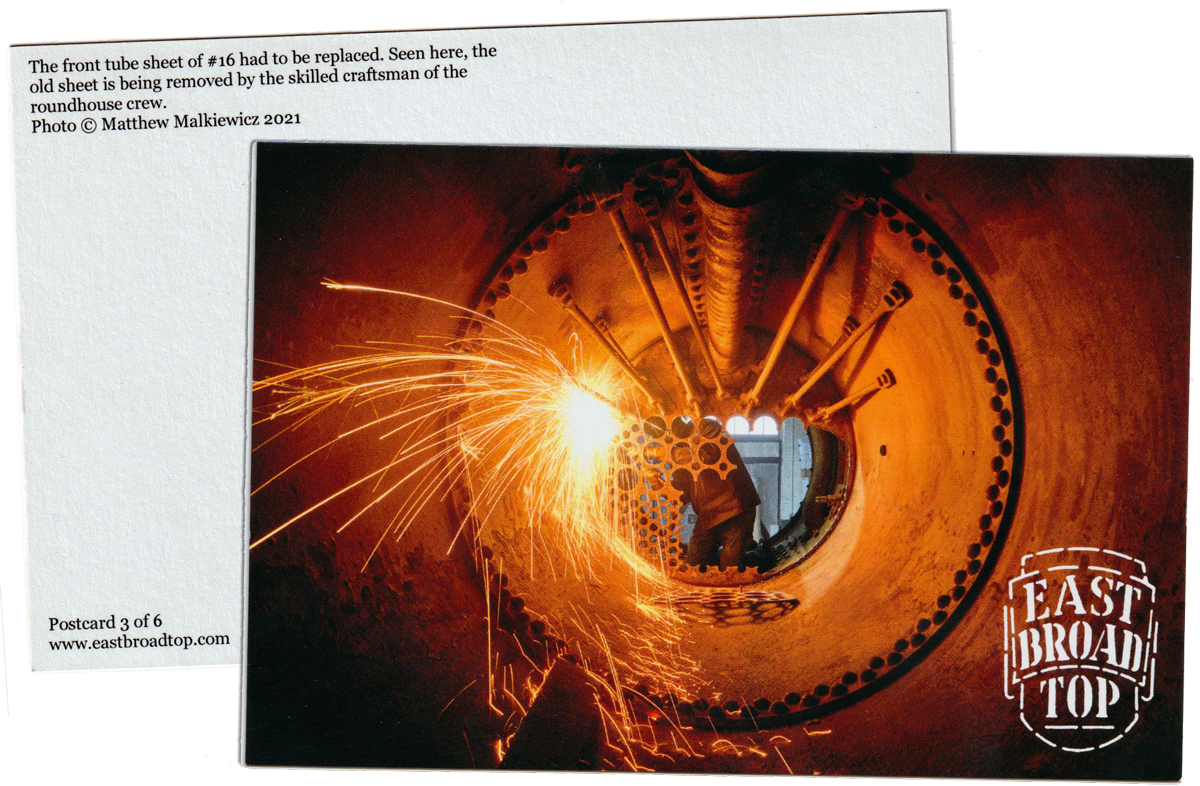
postcard / collection


East Broad Top #17
180 psi boiler, 30,600 tractive effort
stored out of service

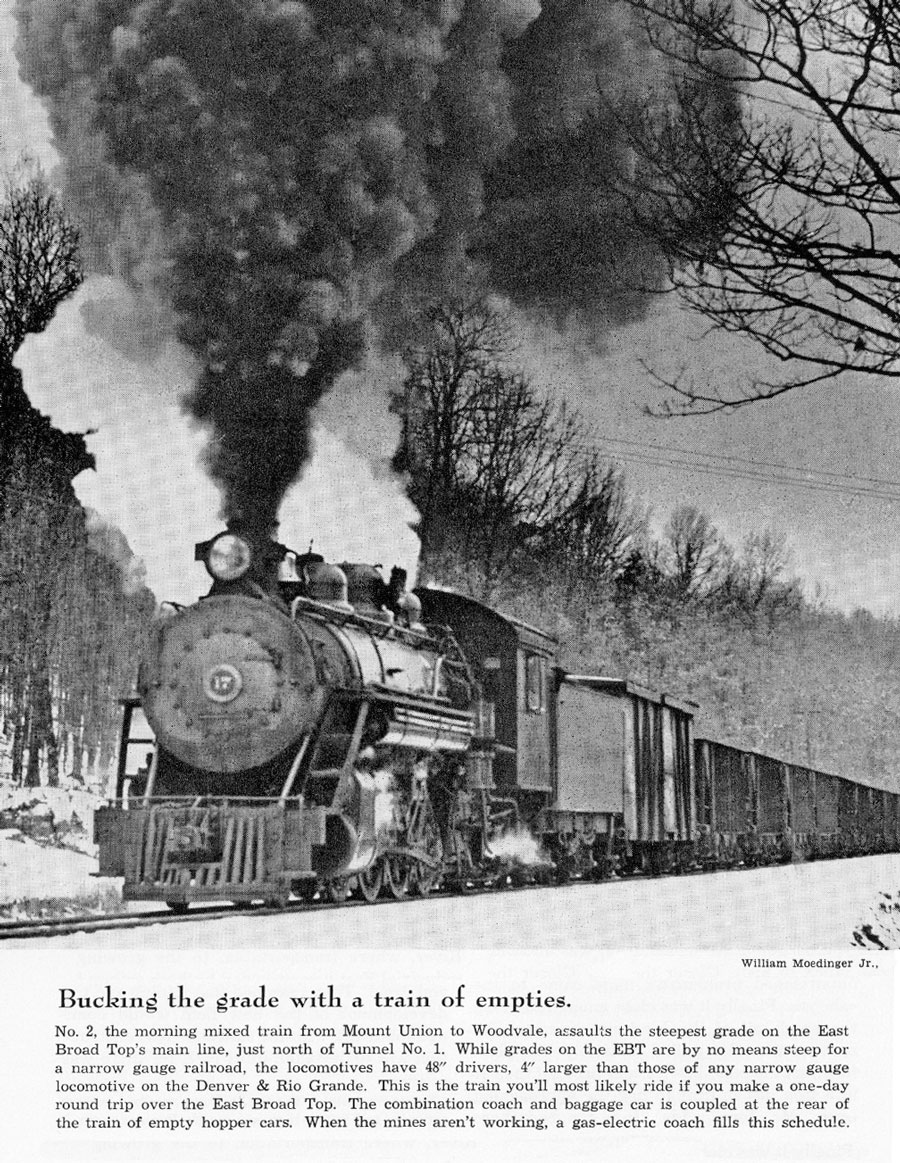
from TRAINS magazine - Aug 1941 / collection
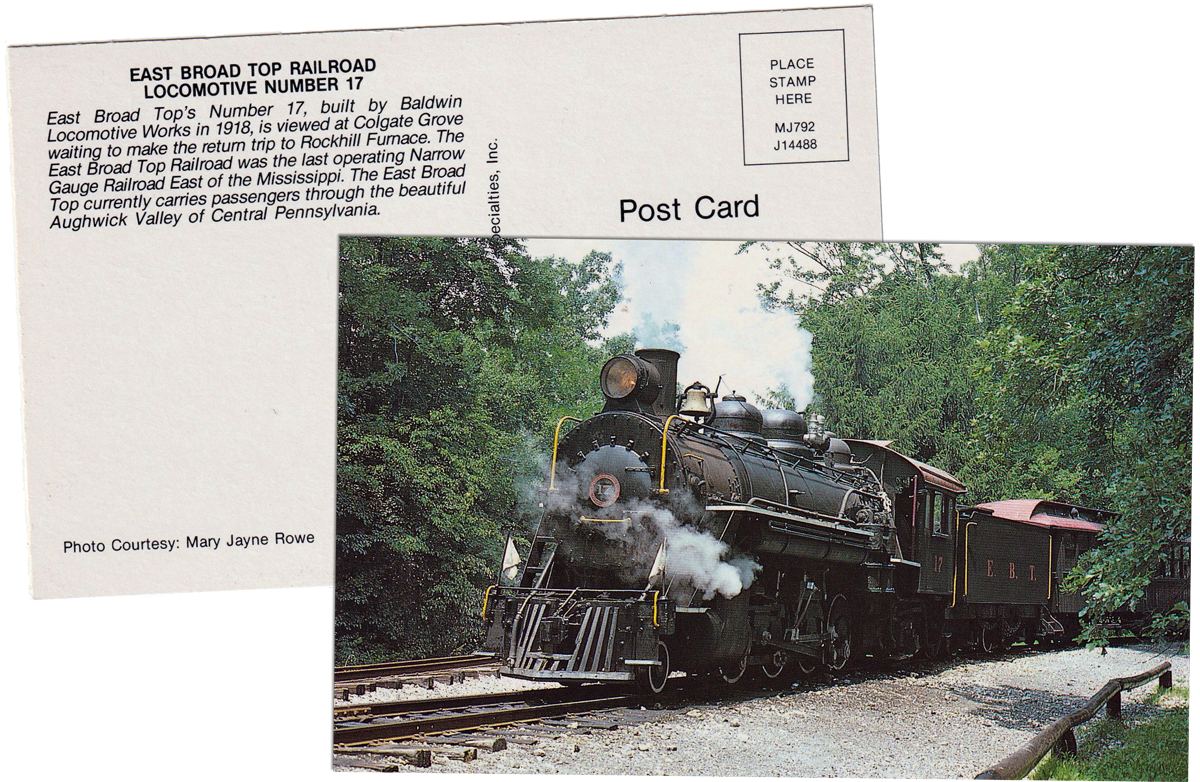
postcard / collection
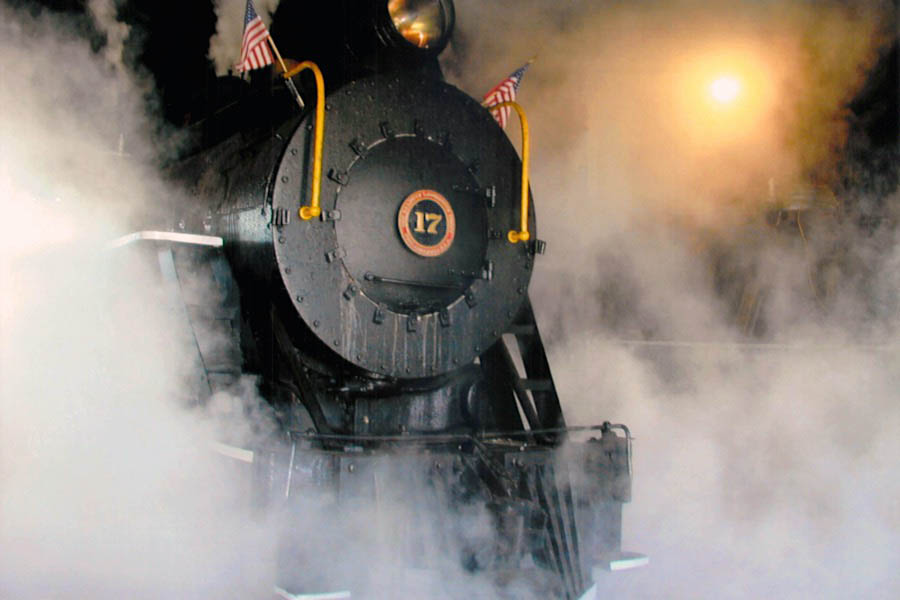
Rockhill, Pa / Oct 1999 / Ray Leader
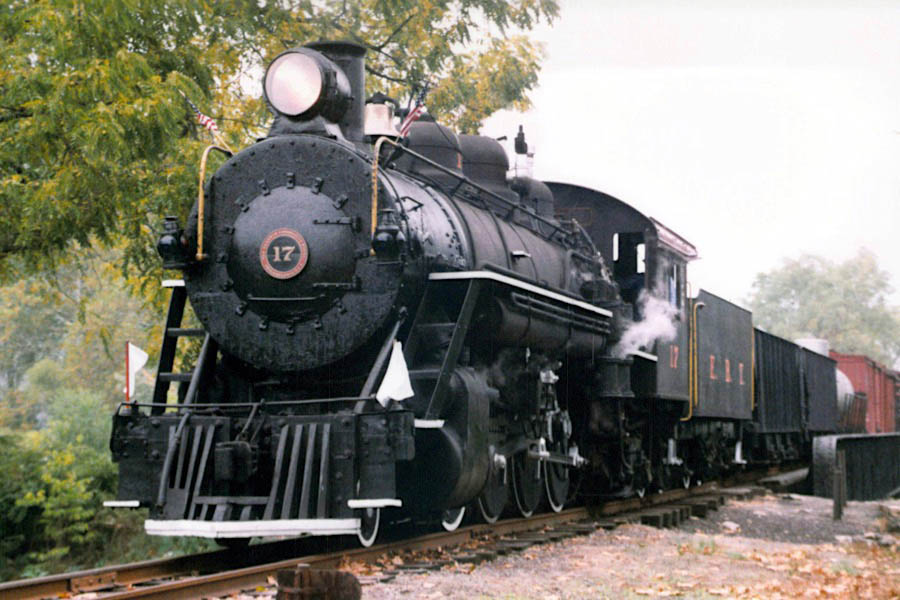
Orbisonia, Pa / Oct 1999 / Ray Leader
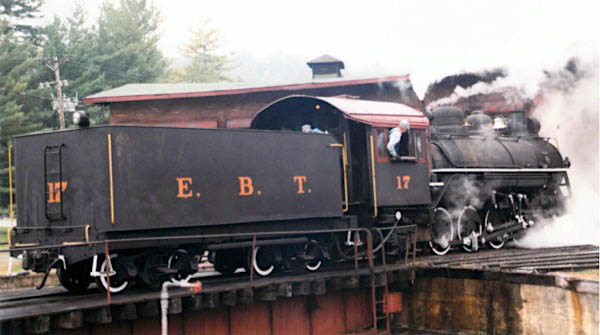
Rockhill, Pa / Oct 1999 / Ray Leader
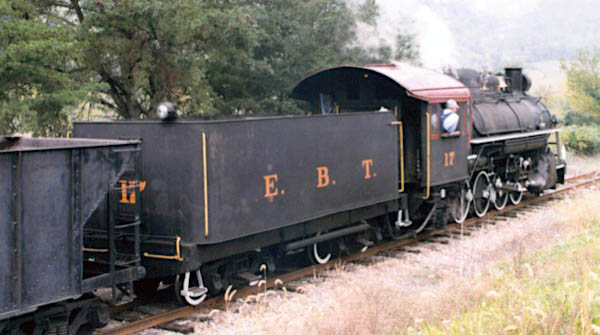
Orbisonia, Pa / Oct 1999 / Ray Leader
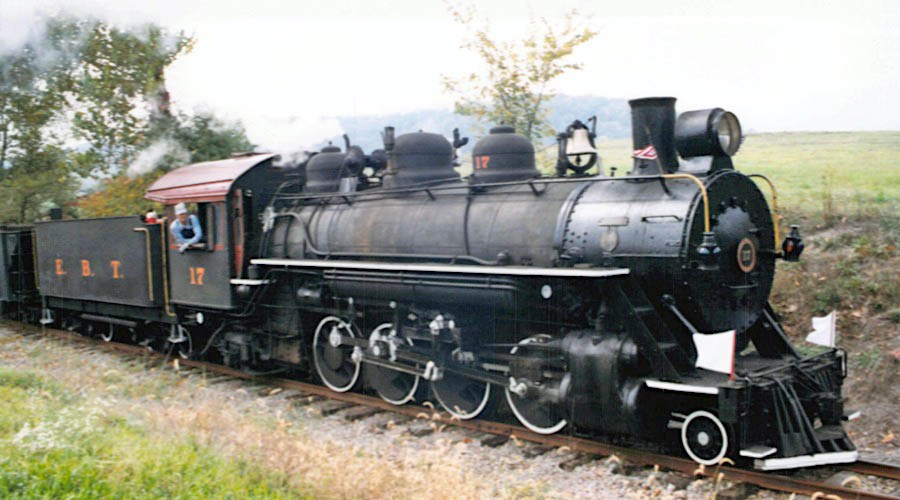
Orbisonia, Pa / Oct 1999 / Ray Leader
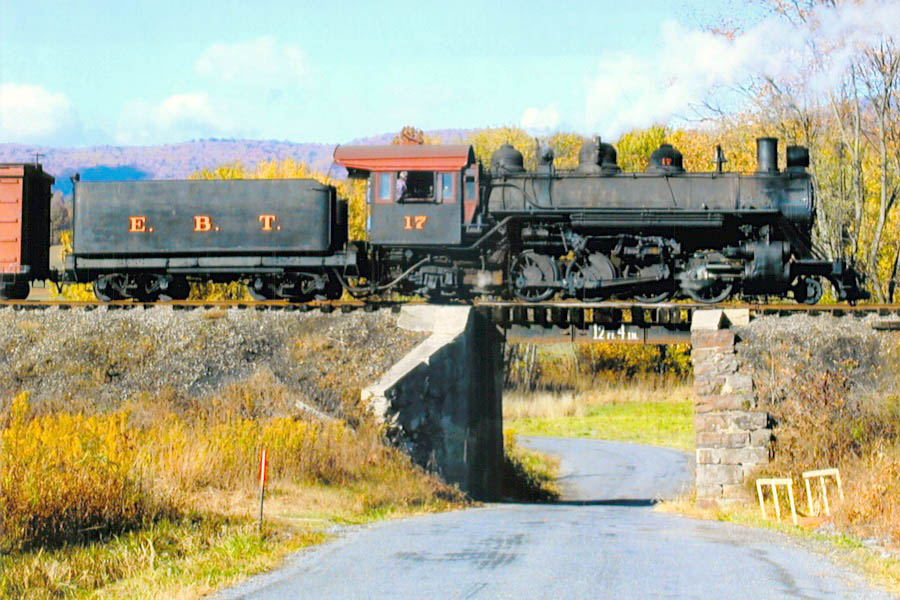
Orbisonia, Pa / Ray Leader
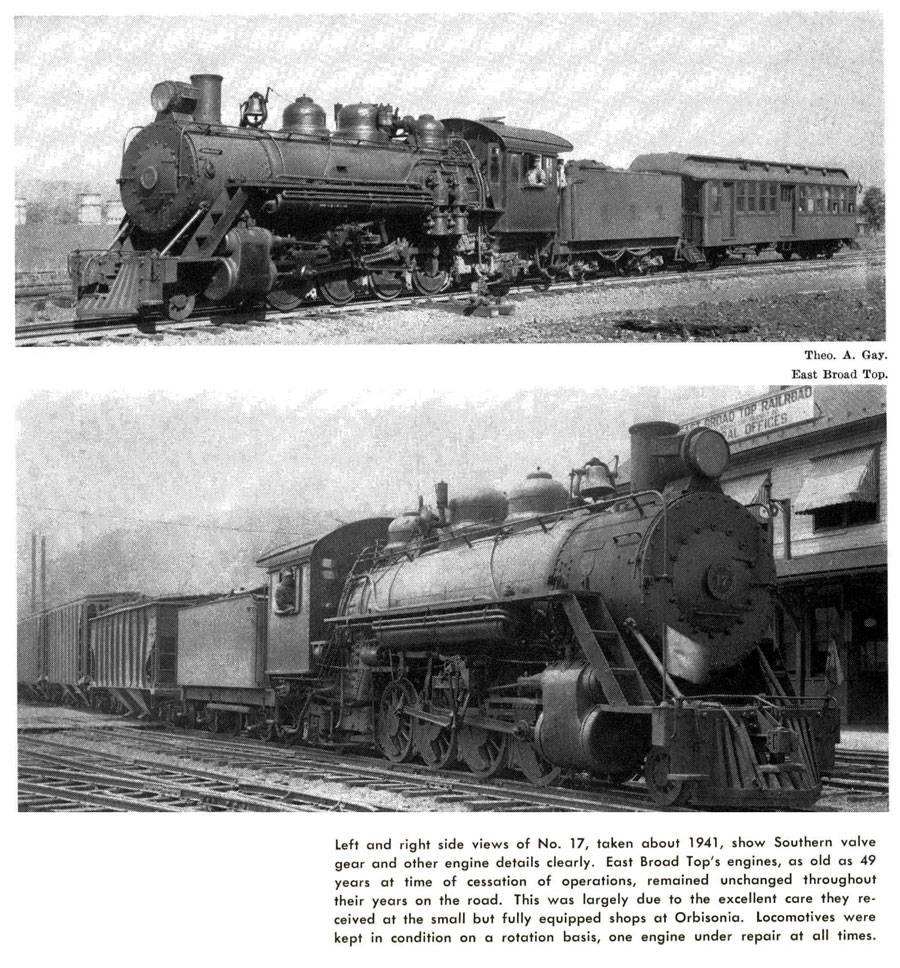
from Model Railroader magazine - Sep 1961 / collection
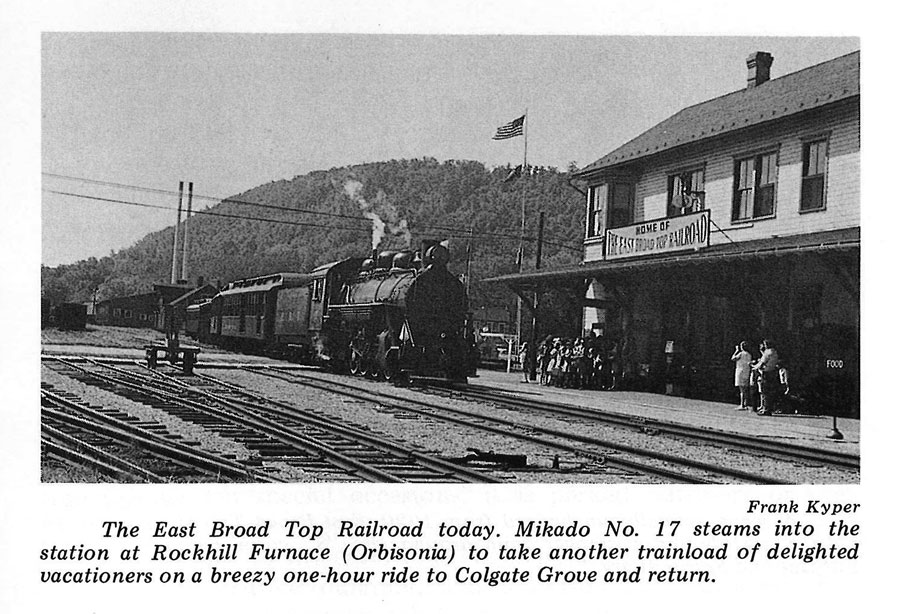
from Ramble into the Past on the East Broad Top - 1971 / collection
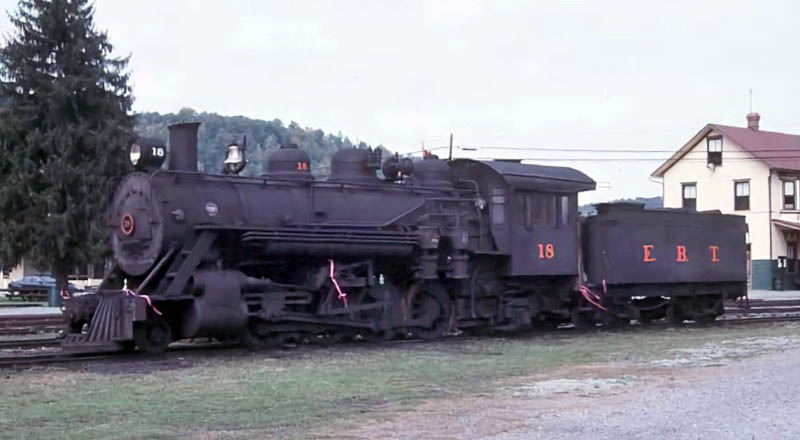
East Broad Top #18
Rockhill, Pa / 1999 / Christopher D. Coleman


East Broad Top #18
180 psi boiler, 30,600 tractive effort
stored out of service

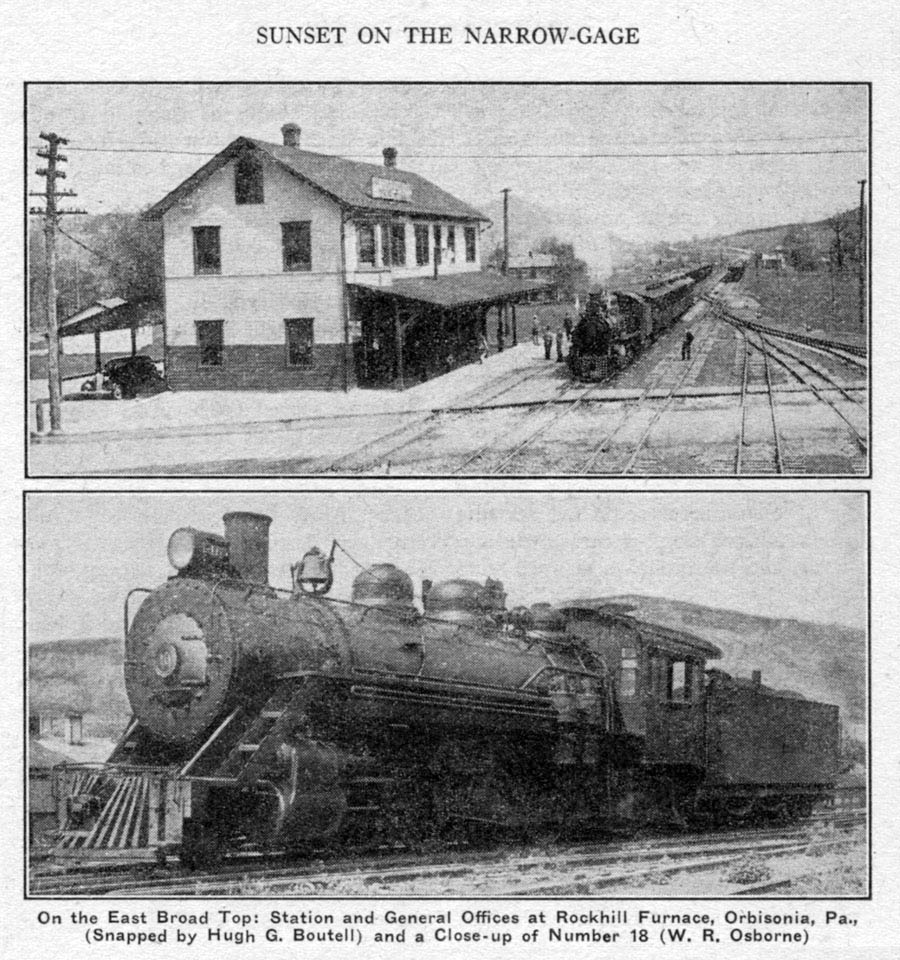
collection
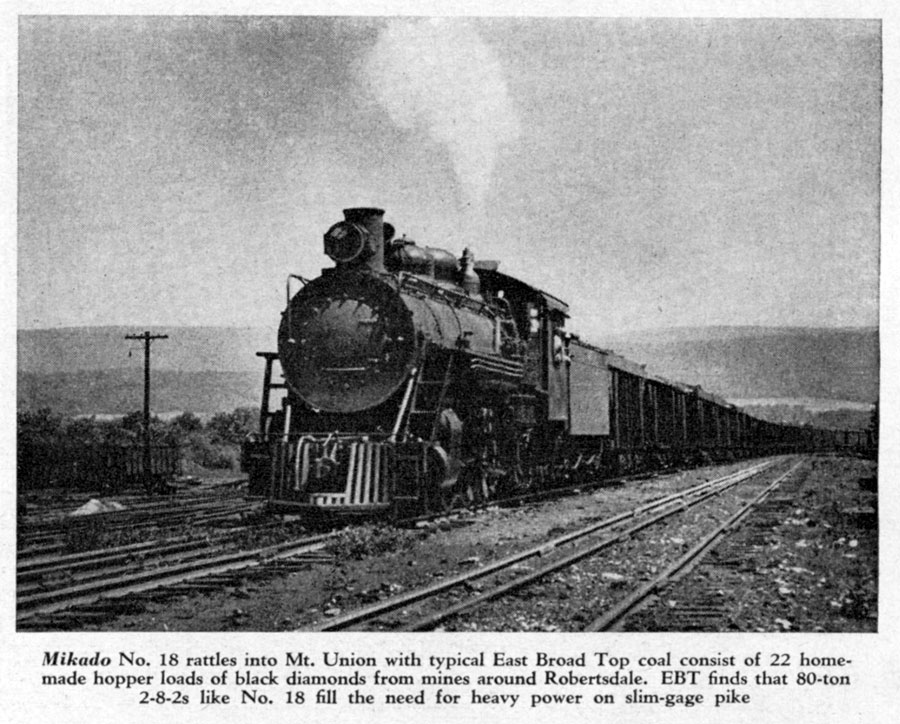
collection
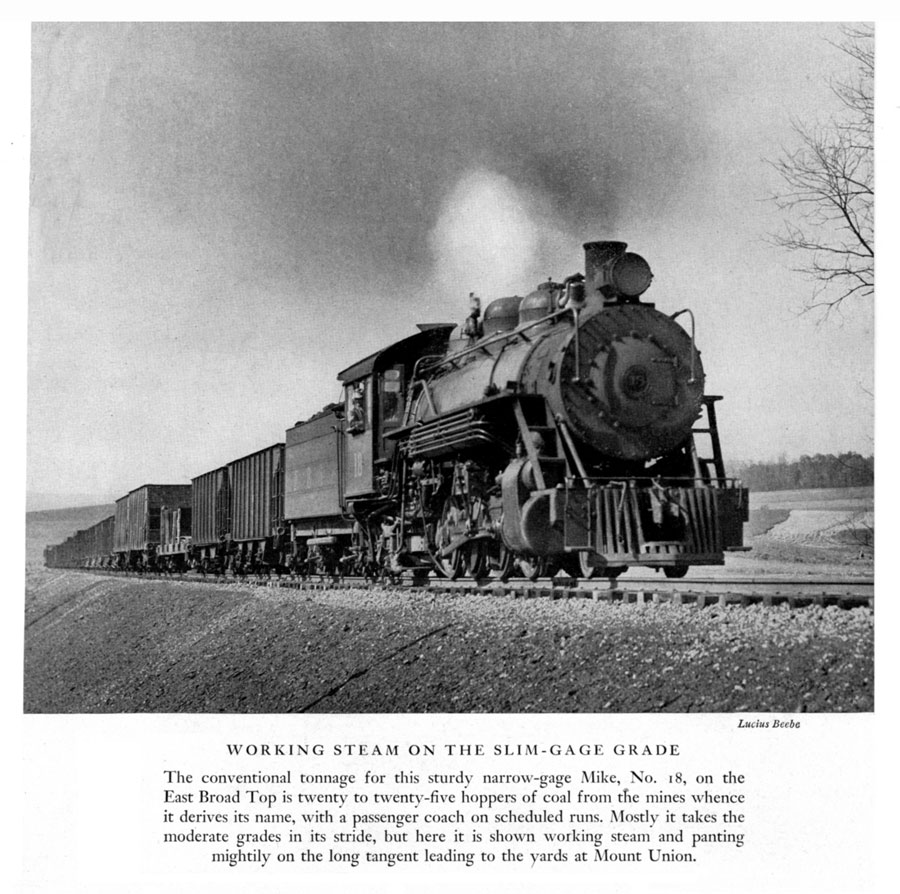
collection
 Clippings
Clippings
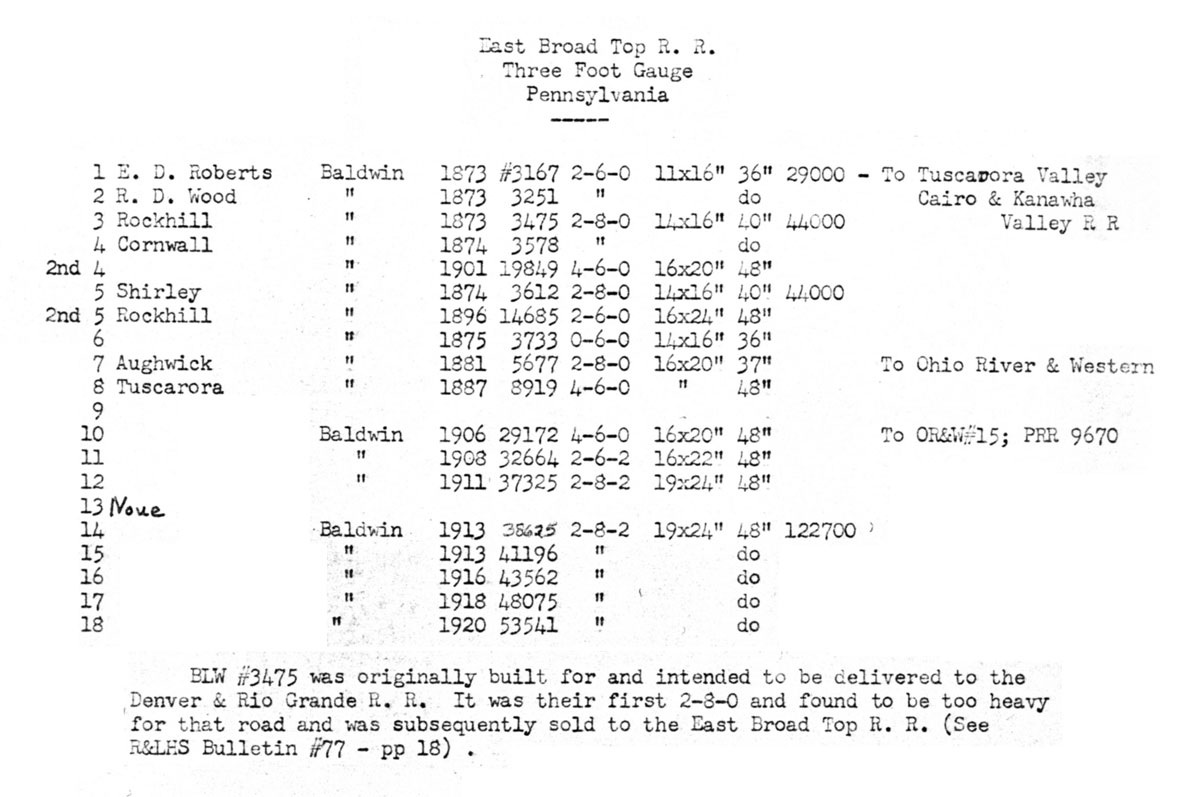
collection
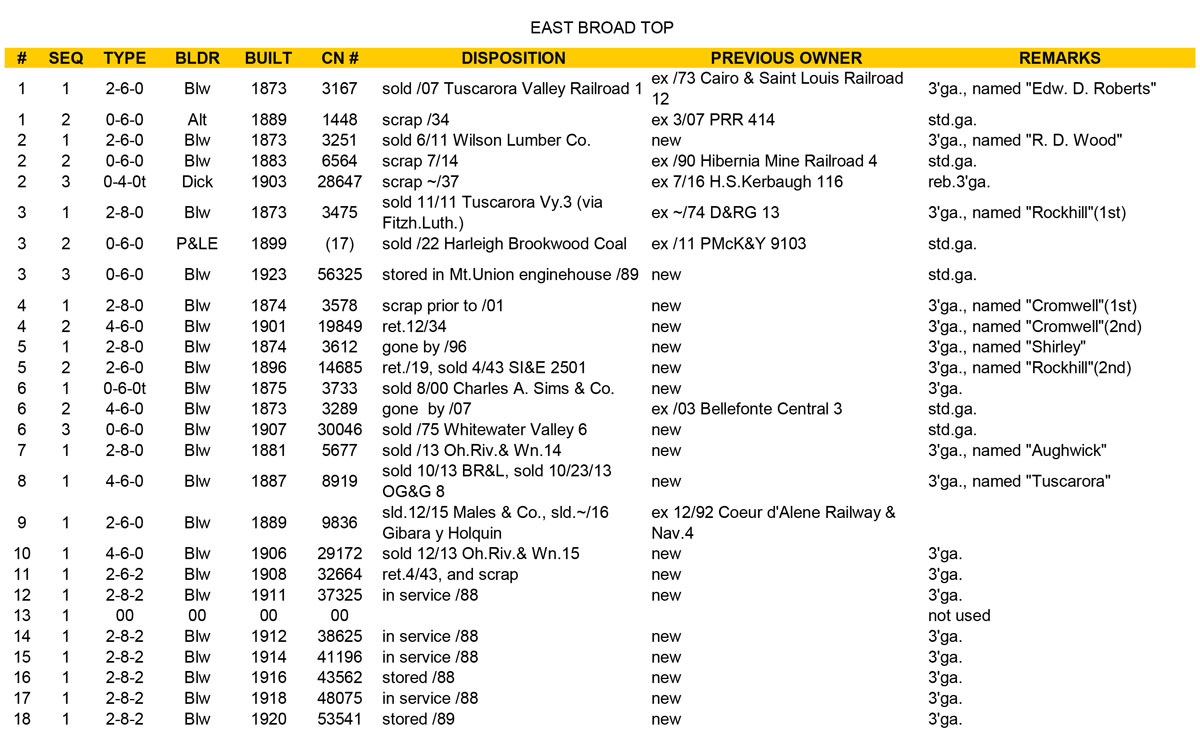
collection
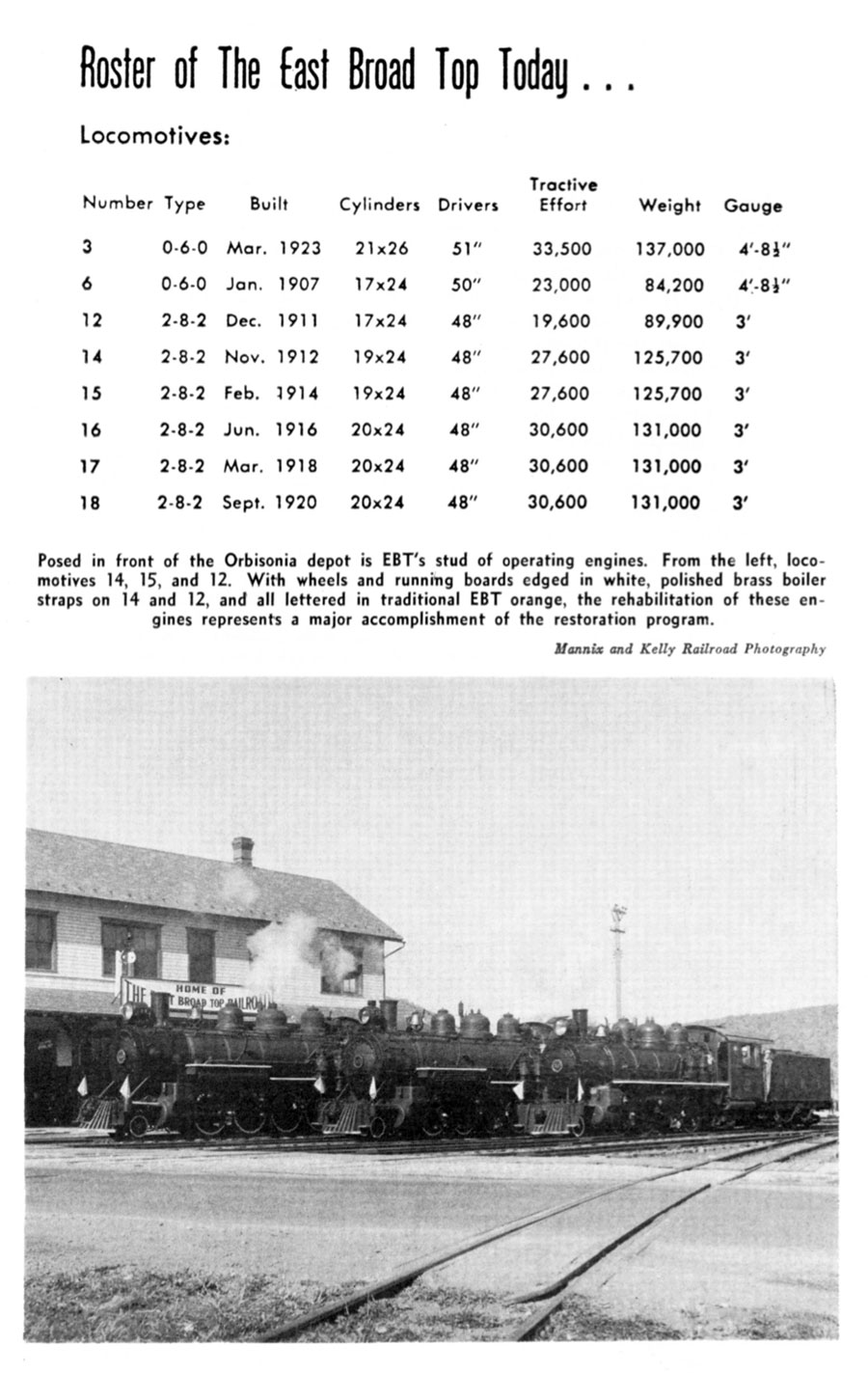
from NRHS Bulletin - spring 1962 / collection
Motorcars

from Railroading Extra - 1971 / collection


East Broad Top #M-1
in service
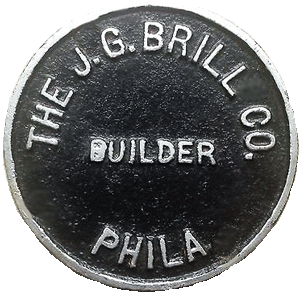
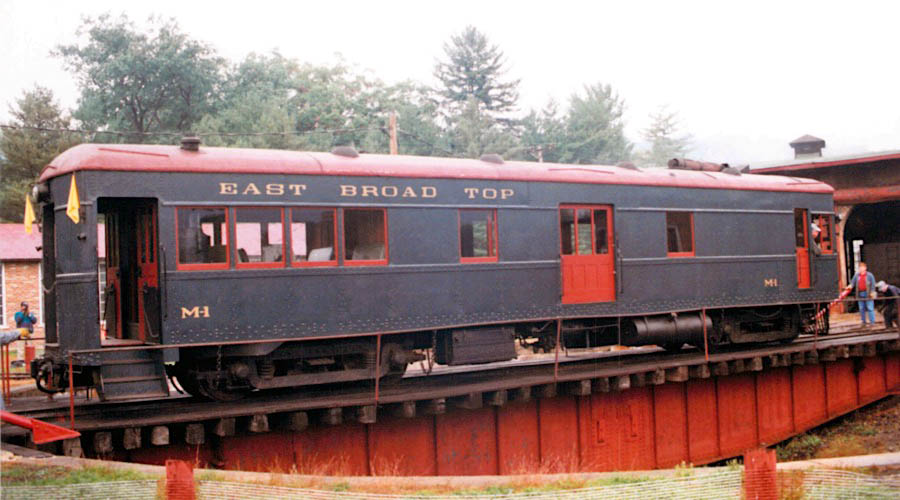
Rockhill, Pa / Oct 1999 / Ray Leader
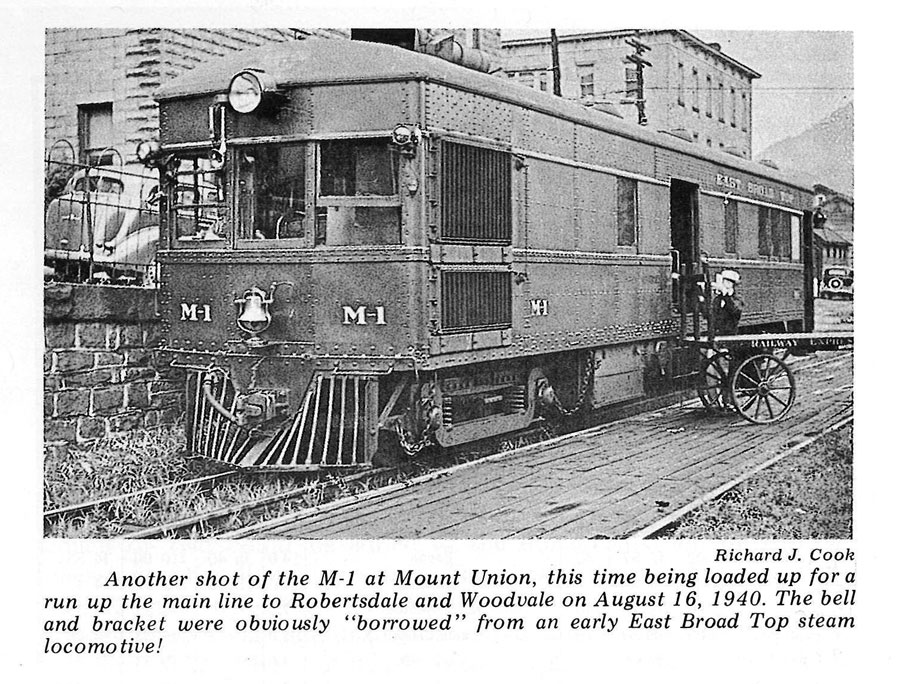
from Ramble into the Past on the East Broad Top - 1971 / collection
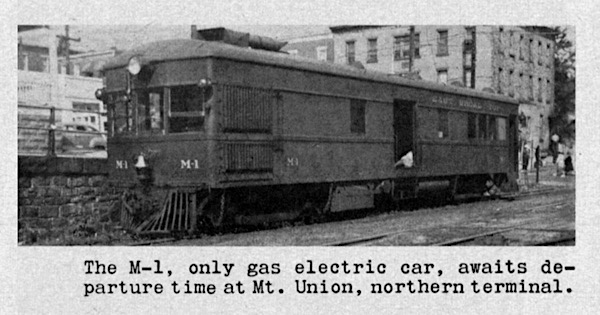
from Railroad Model Craftsman - 1952 / collection
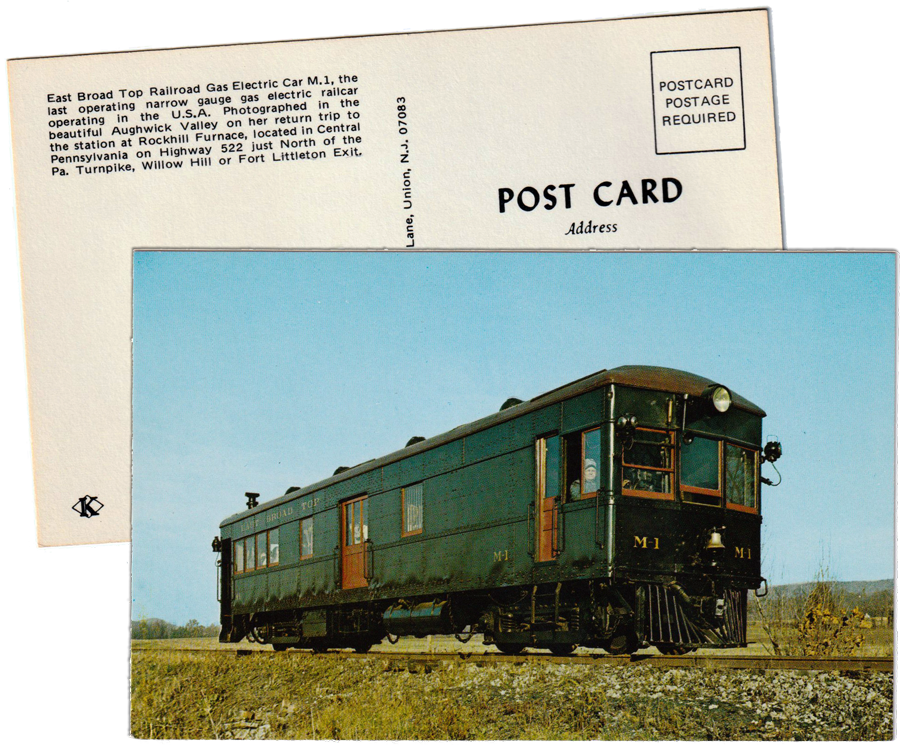
postcard / collection
Diesels
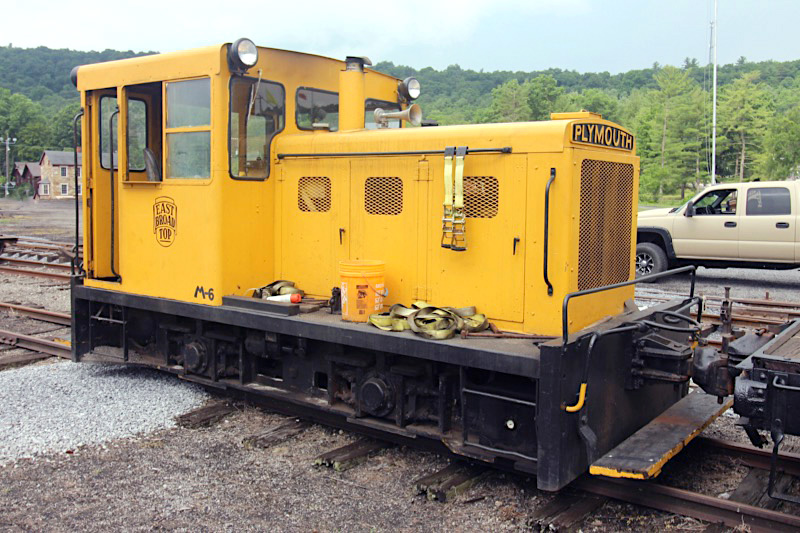
East Broad Top #M-6
Rockhill, Pa / Jul 2020 / RWH


East Broad Top #M-6
in service
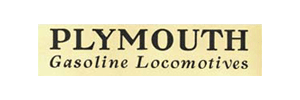
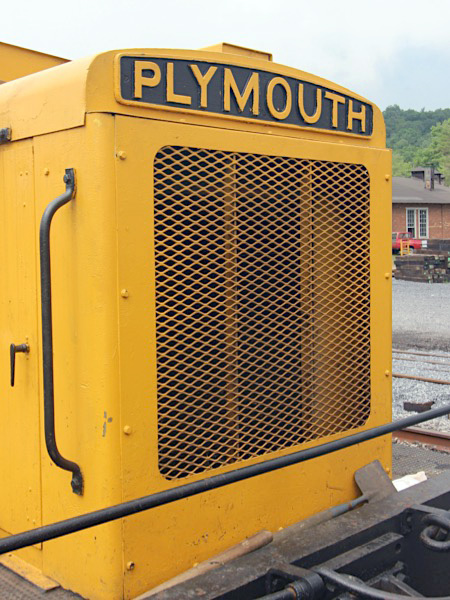
Jul 2020 / RWH
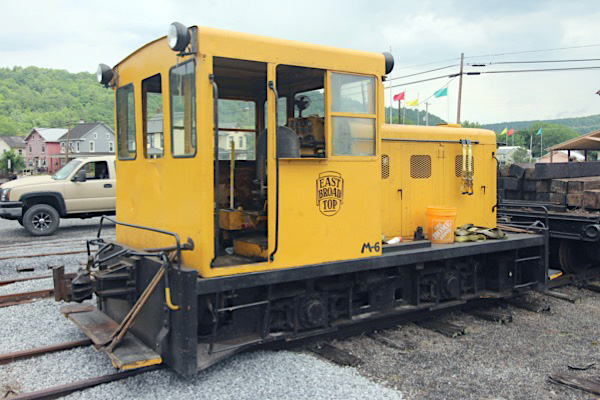
Rockhill, Pa / Jul 2020 / RWH
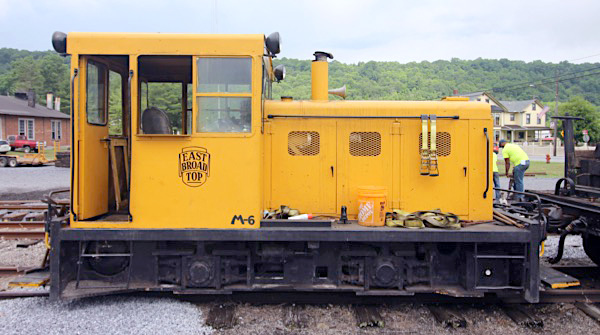
Rockhill, Pa / Jul 2020 / RWH
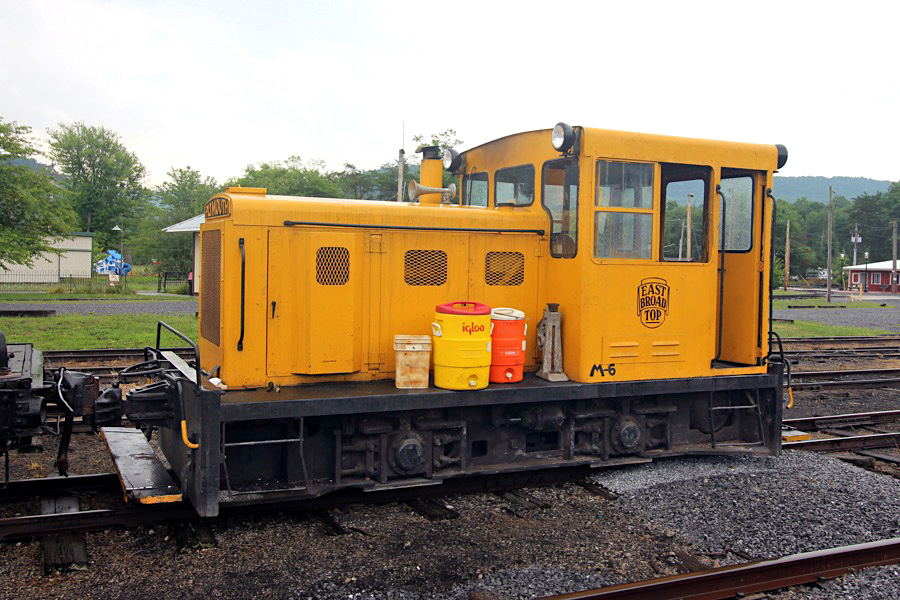
Rockhill, Pa / Jul 2020 / RWH
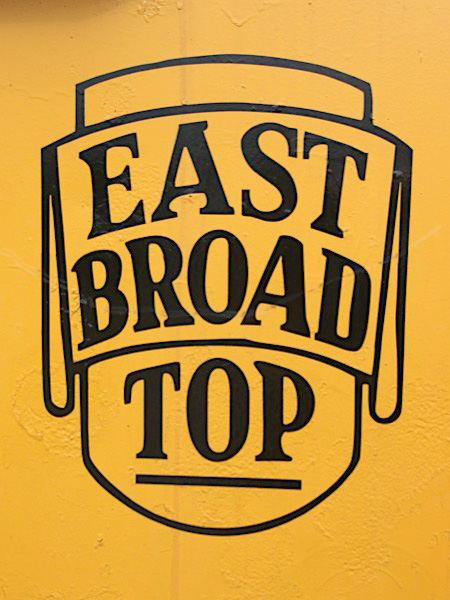
Jul 2020 / RWH
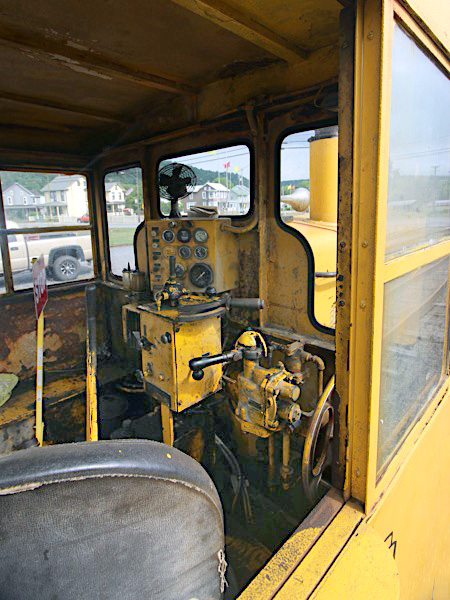
Jul 2020 / RWH
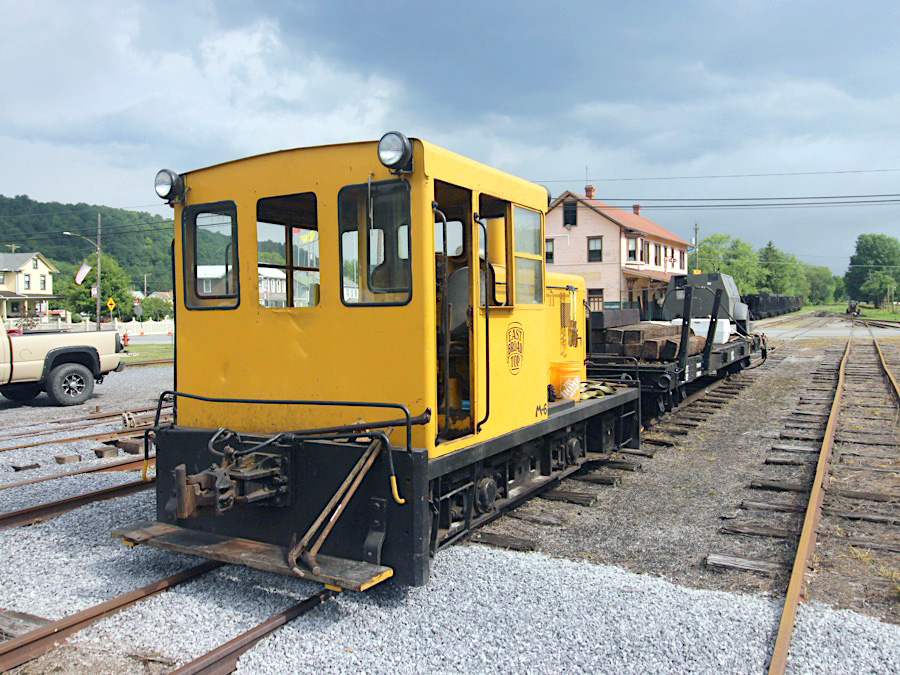
Rockhill, Pa / Jul 2020 / RWH
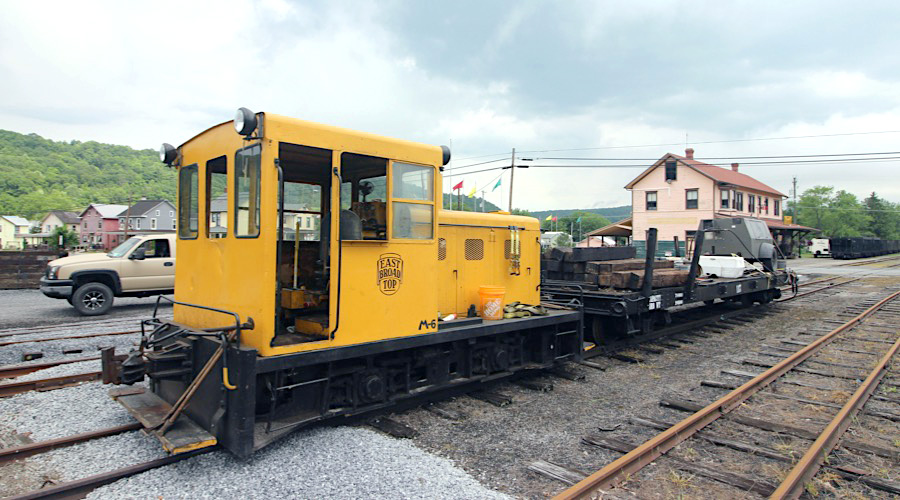
Rockhill, Pa / Jul 2020 / RWH
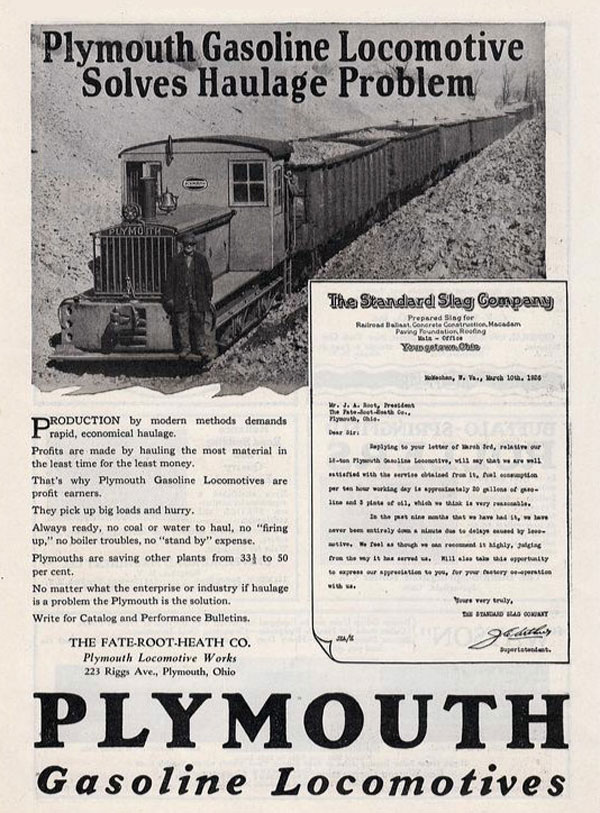
collection
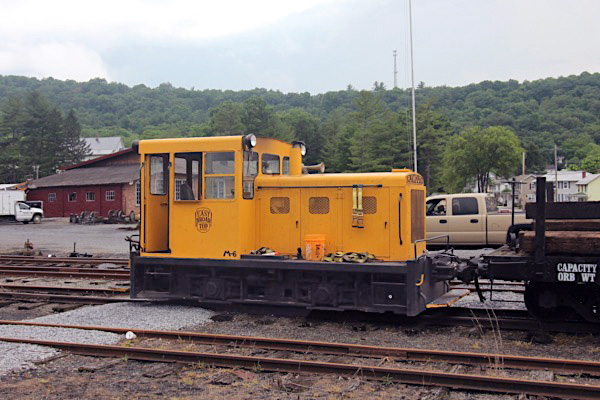
Rockhill, Pa / Jul 2020 / RWH
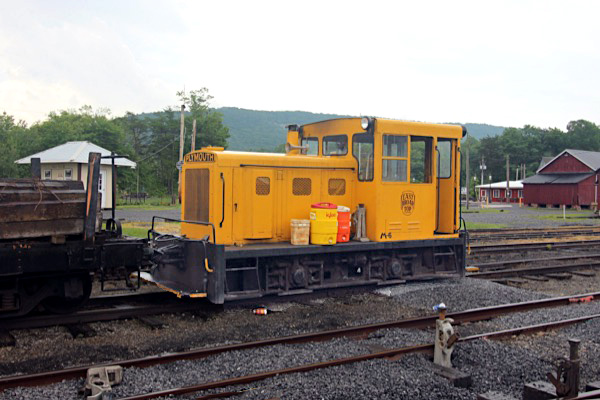
Rockhill, Pa / Jul 2020 / RWH

Rockhill, Pa / Jul 2020 / RWH

Rockhill, Pa / Jul 2020 / RWH
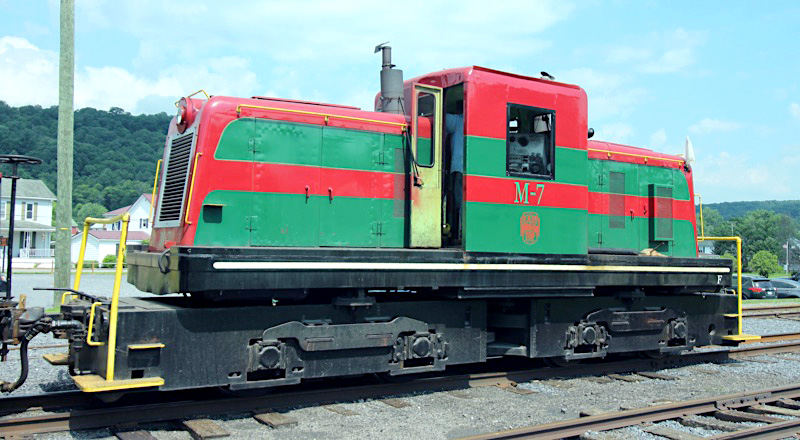
East Broad Top #M-7
Rockhill, Pa / Jun 2022 / RWH


East Broad Top #M-7
to East Broad Top #M-7, in service
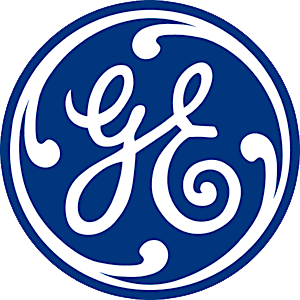
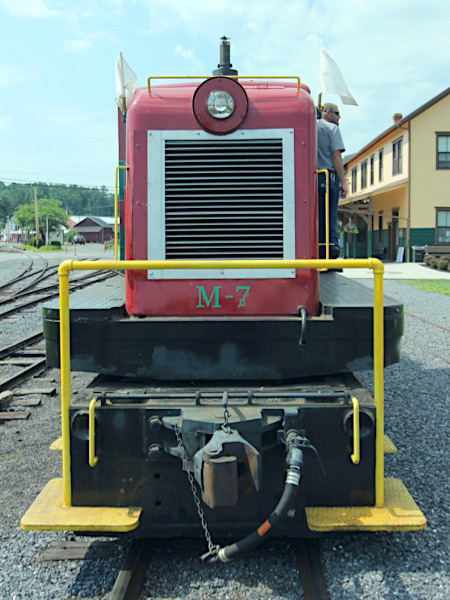
Jun 2022 / RWH
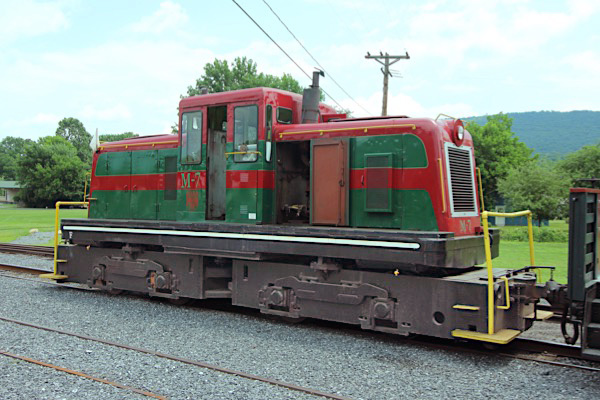
Rockhill, Pa / Jun 2022 / RWH
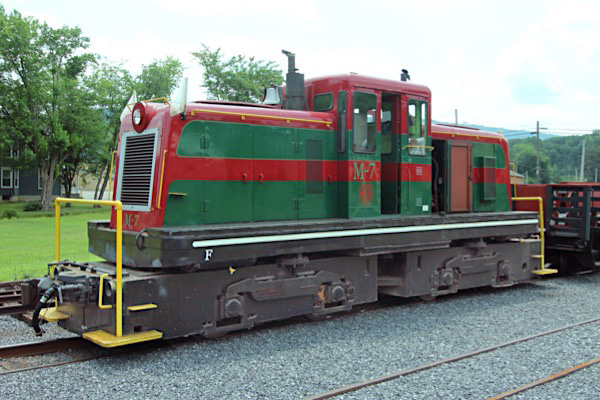
Rockhill, Pa / Jun 2022 / RWH
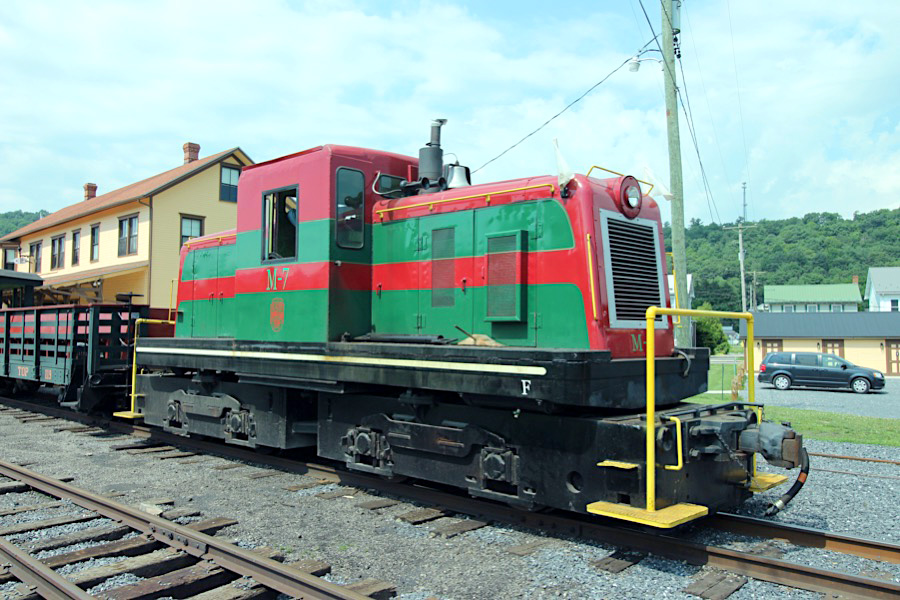
Rockhill, Pa / Jun 2022 / RWH
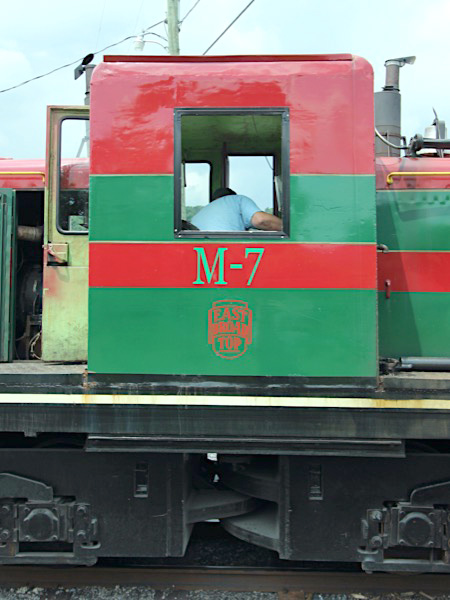
Jun 2022 / RWH

 M-7, three duplicates and a two pair of spare trucks reportdly came to the railroad November 5, 1993 from Kovalchick Salvage's acquisition at an Algoma Steel plant in Sault Sainte Marie. They are singe cab, double ended, diesel-electric locomotives with two engines. They have two Detroit 6-71 inline 6 cyliner diesel engines, one under each hood. They are variously reported as being 150 hp and 170 hp each.
M-7, three duplicates and a two pair of spare trucks reportdly came to the railroad November 5, 1993 from Kovalchick Salvage's acquisition at an Algoma Steel plant in Sault Sainte Marie. They are singe cab, double ended, diesel-electric locomotives with two engines. They have two Detroit 6-71 inline 6 cyliner diesel engines, one under each hood. They are variously reported as being 150 hp and 170 hp each.
The four units were part of a fleet of six at Algoma which pulled the ladle cars. A group of standard gauge 44-ton units also served the plant, dressed in a similar paint scheme. Reportedly these units were ballasted to 50 tons during their service life at Algoma Steel. Units 1, 4, 5 and 6 went to the EBT. This unit was #6. The disposition of the other two units is unknown.
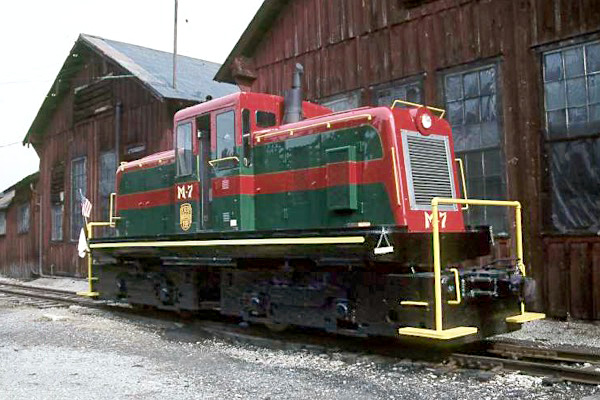 These units are classified as "45-ton" not due to their exact weight, but to differentiate them from the more common "44-ton" units. 44-ton units specifically weighed under the railroad union contract stipulation that all locomotives 45 ton and higher be manned by both an engineer and fireman, and those less only an engineer. "45-ton" locomotives differ from the more common "44-ton" in having only one traction motor per truck rathern than two, and no blowers to cool the traction motors. This was due to their intended role of operating at low speeds for short distnaces inside industrial plants. Being in industry rather than railroad company use, they were not subject to the 45 ton railroad union contract. Early 45-ton units had siderods to connect the unpowered axle in each truck to the powered one, but these, as with later 45-ton units, have chains on the axles connecting the axles. Further differentiating these from most 45-ton units are are their narrow bodies, higher hoods, and their undercarrige, which is divoid of tanks and reserviors and instead having a pair of variable gauge plate trucks. Reportedly these units actually weigh 50 tons due to ballasting, but are still of the "45 Ton" class.
These units are classified as "45-ton" not due to their exact weight, but to differentiate them from the more common "44-ton" units. 44-ton units specifically weighed under the railroad union contract stipulation that all locomotives 45 ton and higher be manned by both an engineer and fireman, and those less only an engineer. "45-ton" locomotives differ from the more common "44-ton" in having only one traction motor per truck rathern than two, and no blowers to cool the traction motors. This was due to their intended role of operating at low speeds for short distnaces inside industrial plants. Being in industry rather than railroad company use, they were not subject to the 45 ton railroad union contract. Early 45-ton units had siderods to connect the unpowered axle in each truck to the powered one, but these, as with later 45-ton units, have chains on the axles connecting the axles. Further differentiating these from most 45-ton units are are their narrow bodies, higher hoods, and their undercarrige, which is divoid of tanks and reserviors and instead having a pair of variable gauge plate trucks. Reportedly these units actually weigh 50 tons due to ballasting, but are still of the "45 Ton" class.
Christopher D. Coleman's Old Eastie website
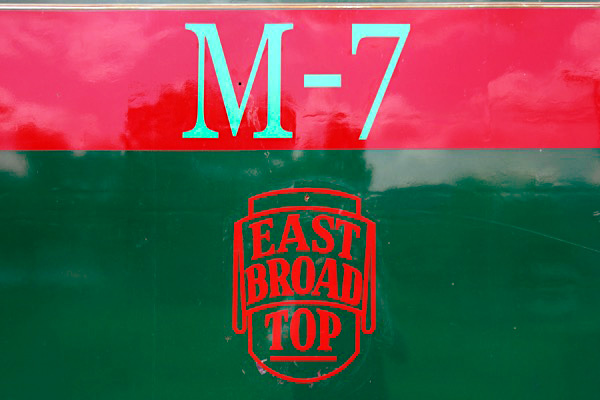
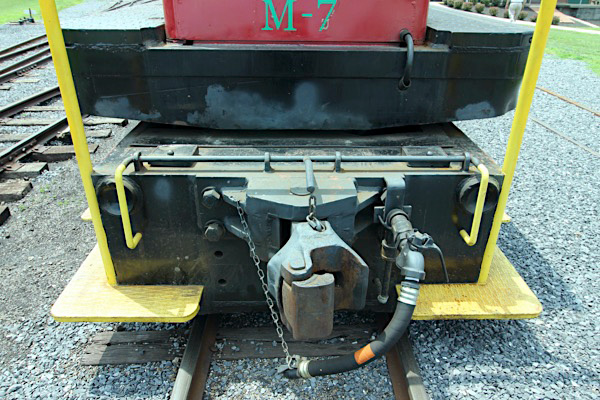
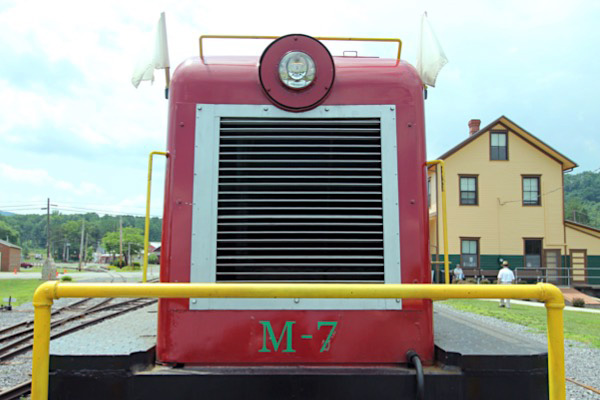
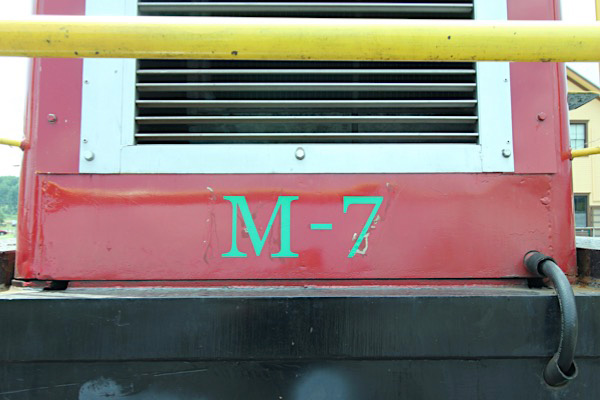
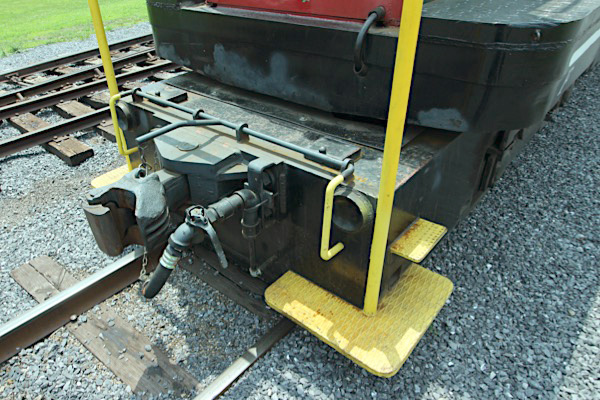
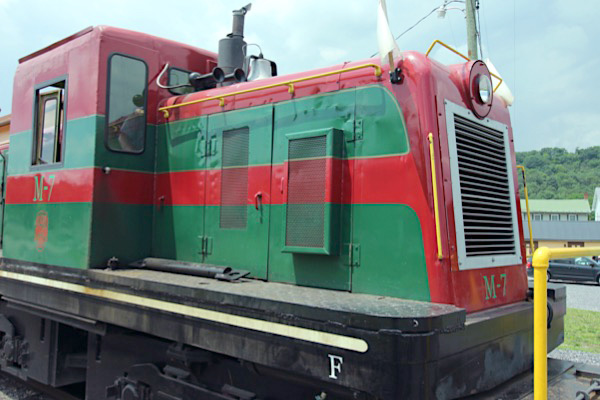
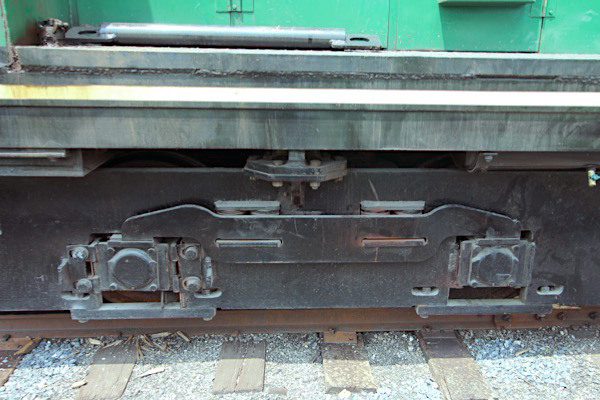
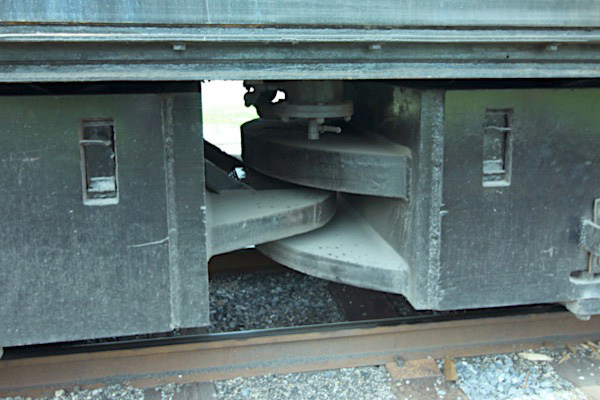
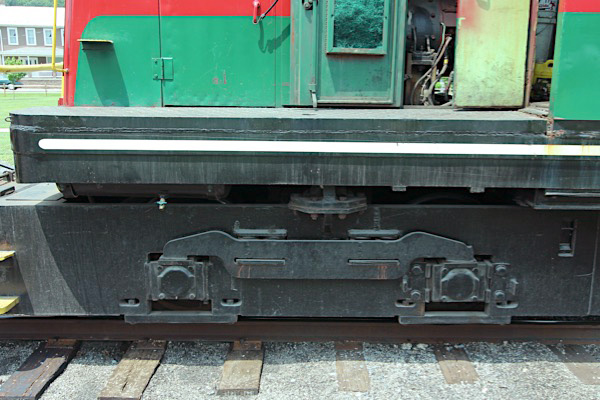
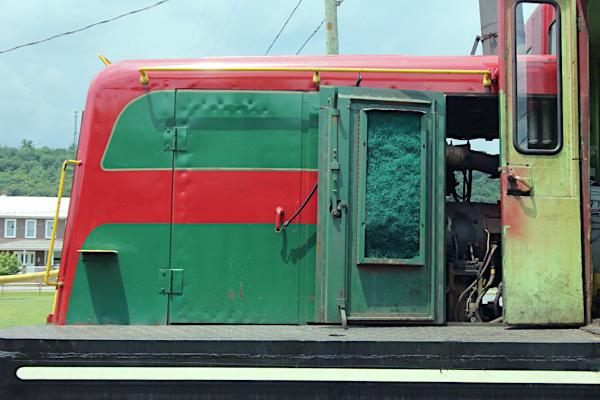
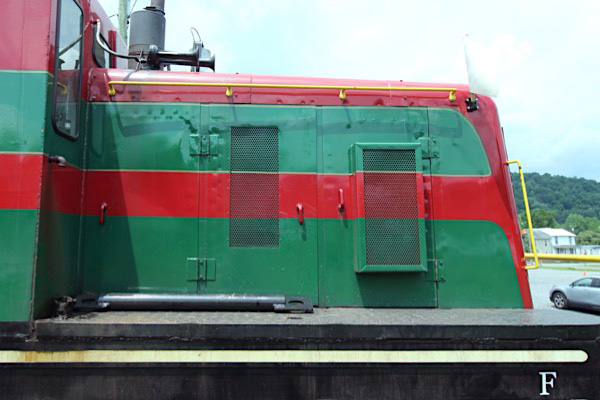
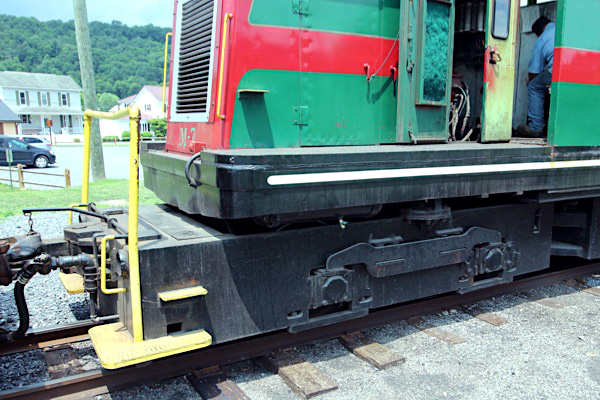
Jun 2022 / RWH
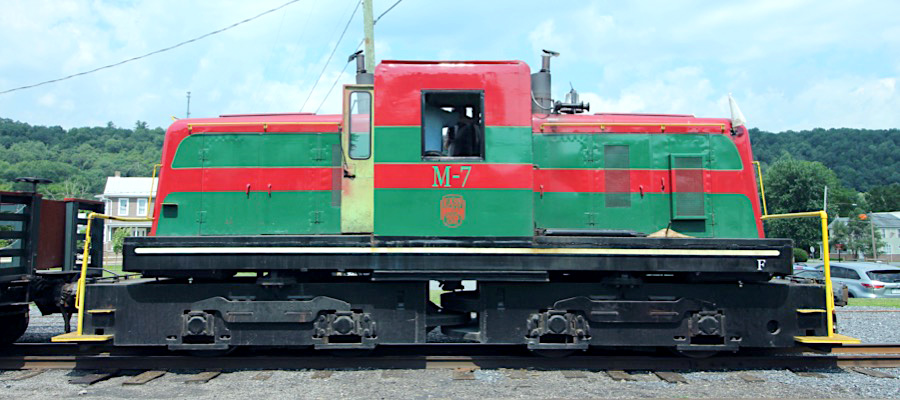
Rockhill, Pa / Jun 2022 / RWH
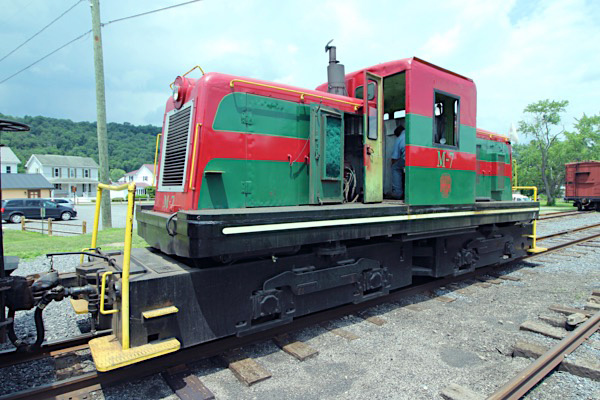
Rockhill, Pa / Jun 2022 / RWH

Rockhill, Pa / Jun 2022 / RWH
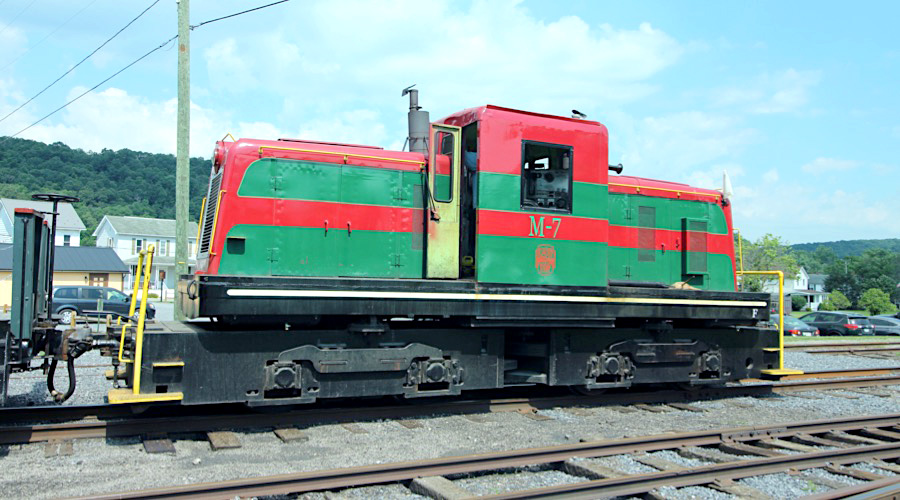
Rockhill, Pa / Jun 2022 / RWH
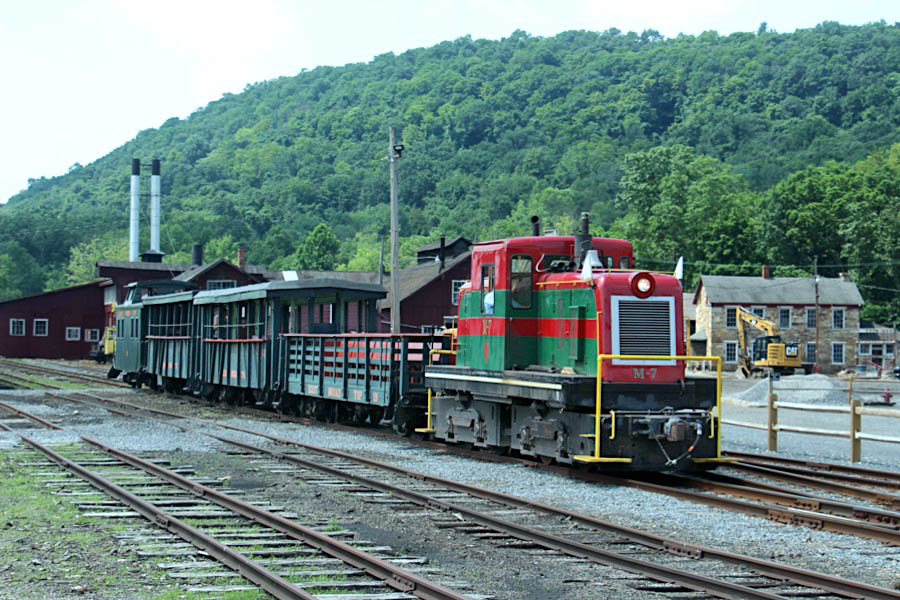
Rockhill, Pa / Jun 2022 / RWH
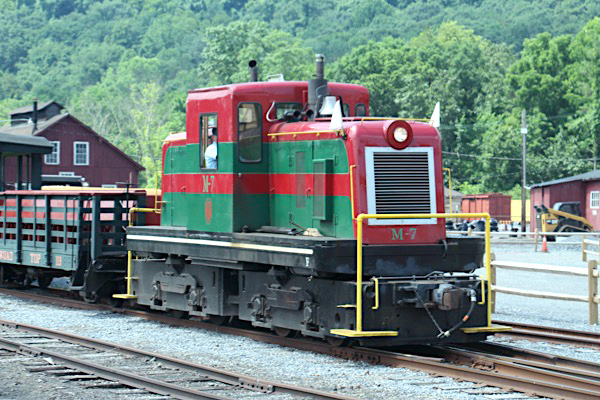
Jun 2022 / RWH
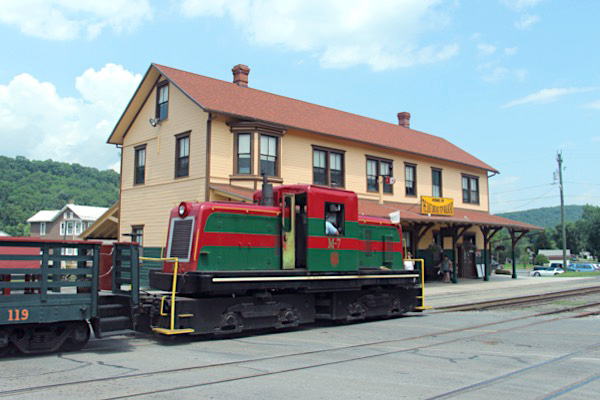
Rockhill, Pa / Jun 2022 / RWH
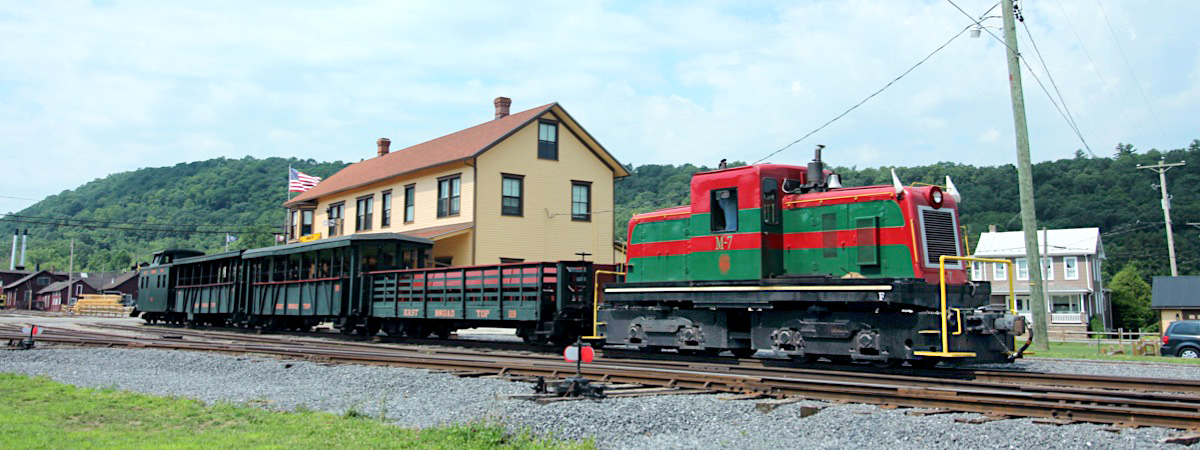
Rockhill, Pa / Jun 2022 / RWH
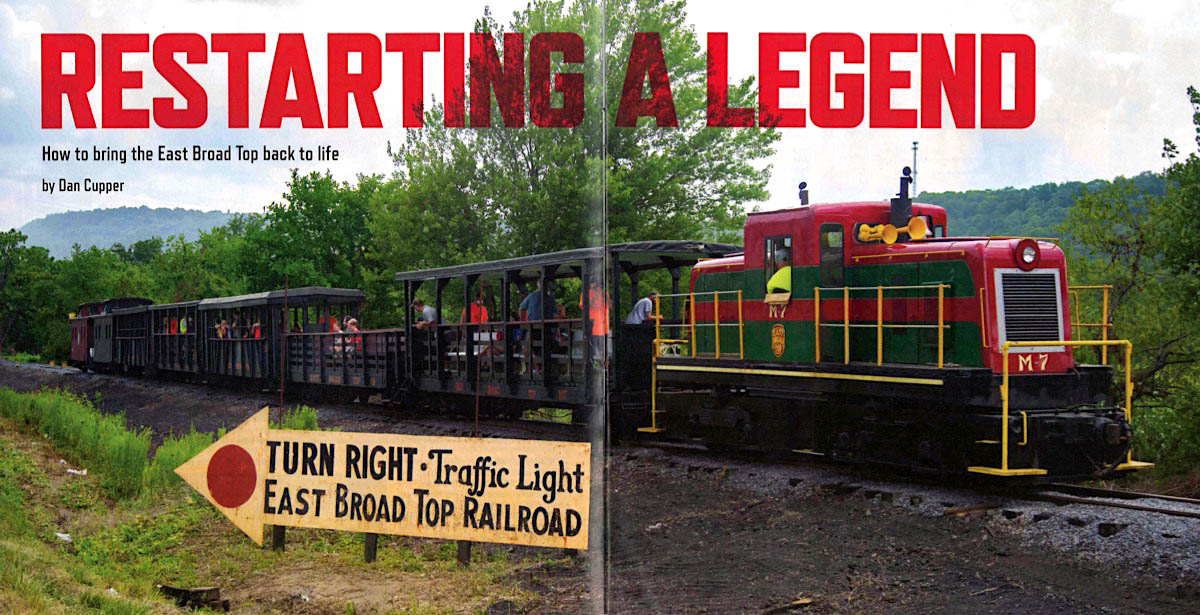
from TRAINS magazine - May 2022 / collection
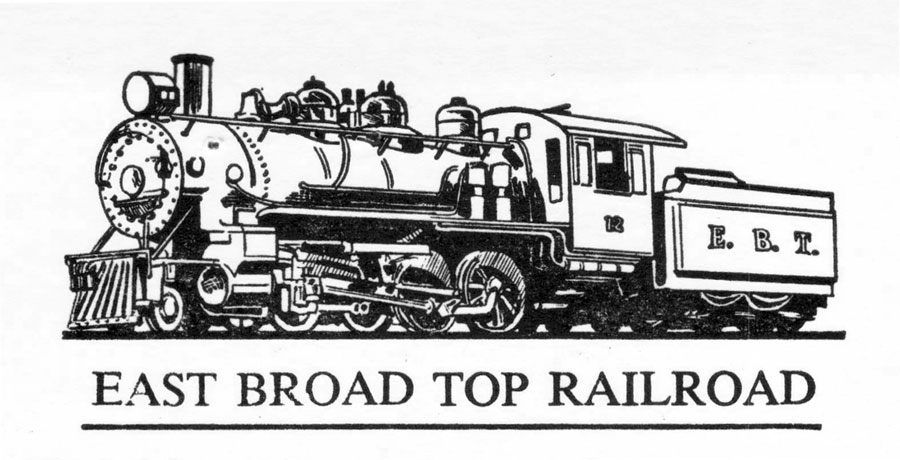
 The East Broad Top is unusual in that it is a complete, original railroad rather than a collection of pieces from various locations, as most tourist railroads are. All six of the 3 ft narrow-gauge steam locomotives that operated on the railroad in its last years as a coal hauler are still on site, and some were used for the excursion trains.
The East Broad Top is unusual in that it is a complete, original railroad rather than a collection of pieces from various locations, as most tourist railroads are. All six of the 3 ft narrow-gauge steam locomotives that operated on the railroad in its last years as a coal hauler are still on site, and some were used for the excursion trains.
